Audio engineering is an artful blend of science, technology, and creativity.
It’s the backbone of the music we love, podcasts we binge, and movies that move us.
If you’re wondering how to become an audio engineer (or want to refine your existing skills), this comprehensive guide is for you.
By diving into the intricacies of sound and technology, you can master the craft and produce soundscapes like a seasoned professional.
In today’s article, we’ll be breaking down:
- The core responsibilities of an audio engineer ✓
- The fascinating science behind sound quality ✓
- Mastering the art of sound manipulation ✓
- Essential equipment and techniques ✓
- The dynamic between audio engineering & music production ✓
- Career opportunities as an audio engineer ✓
- Pro tips for aspiring engineers ✓
- Much more ✓
After soaking in the knowledge from this guide, you’ll be equipped to understand the role of an audio engineer on a deeper level and make informed decisions in studio settings.
You’ll be on your way to securing an audio engineering position.
As well as enhance your audio engineering skills, impress anyone you come across, and make your name a staple in the music industry.
So, let’s dive in…
Table of Contents
The Responsibilities of an Audio Engineer
Audio engineering goes beyond just tweaking sound knobs 一 it’s about sculpting and refining auditory experiences.
Before diving into the technicalities, let’s discuss the unique roles an audio engineer is responsible for and what you’ll need to learn.
#1. Sound Sculpting
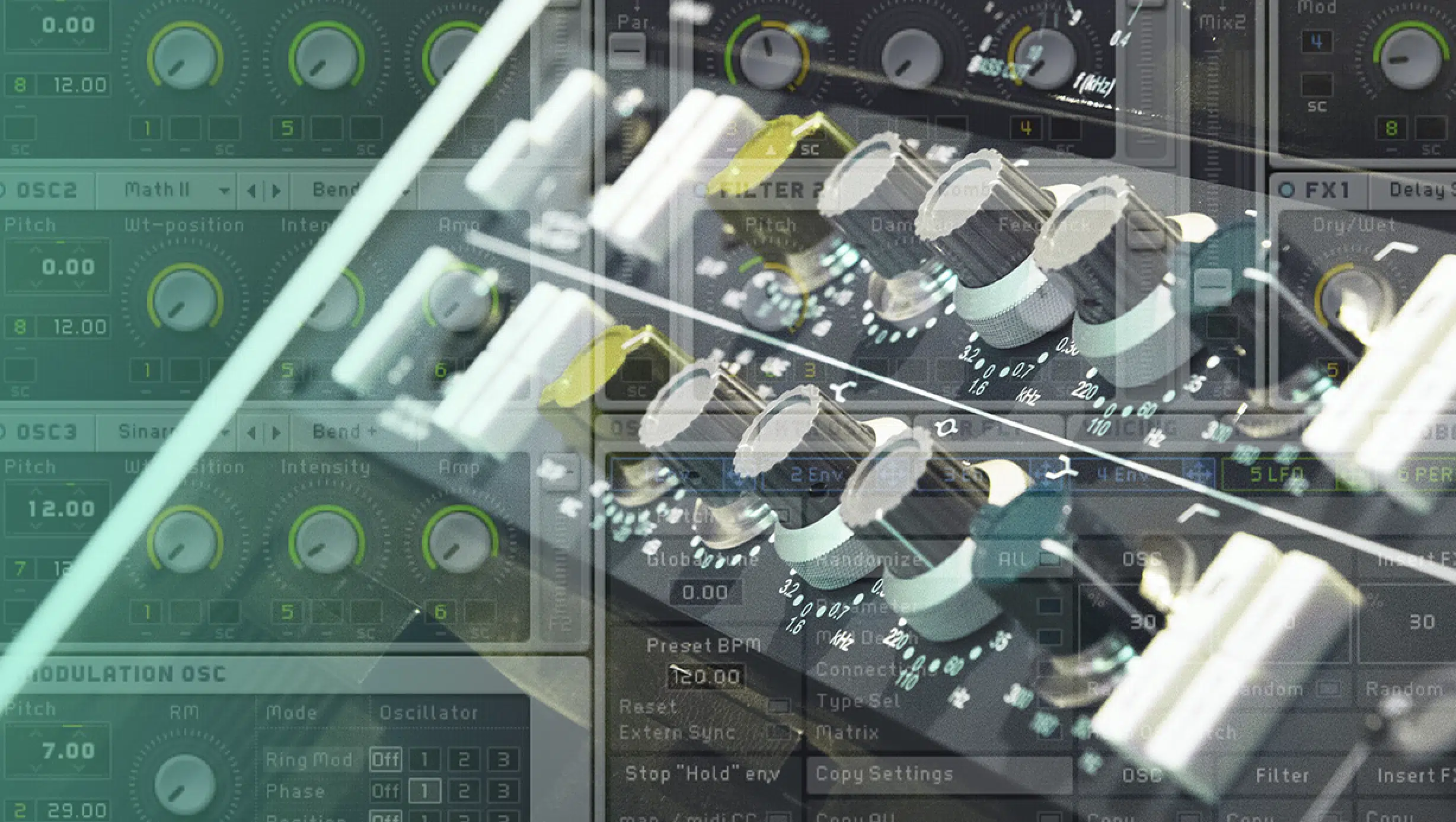
Audio engineers shape sound (adjusting sound) at the core of their role.
Audio engineers determine the depth, the presence, and the clarity of every note in a recording.
Consider the echoes in a cathedral or the bass thumping in a club 一 audio engineers recreate and refine such experiences in recordings.
#2. Equipment Expertise
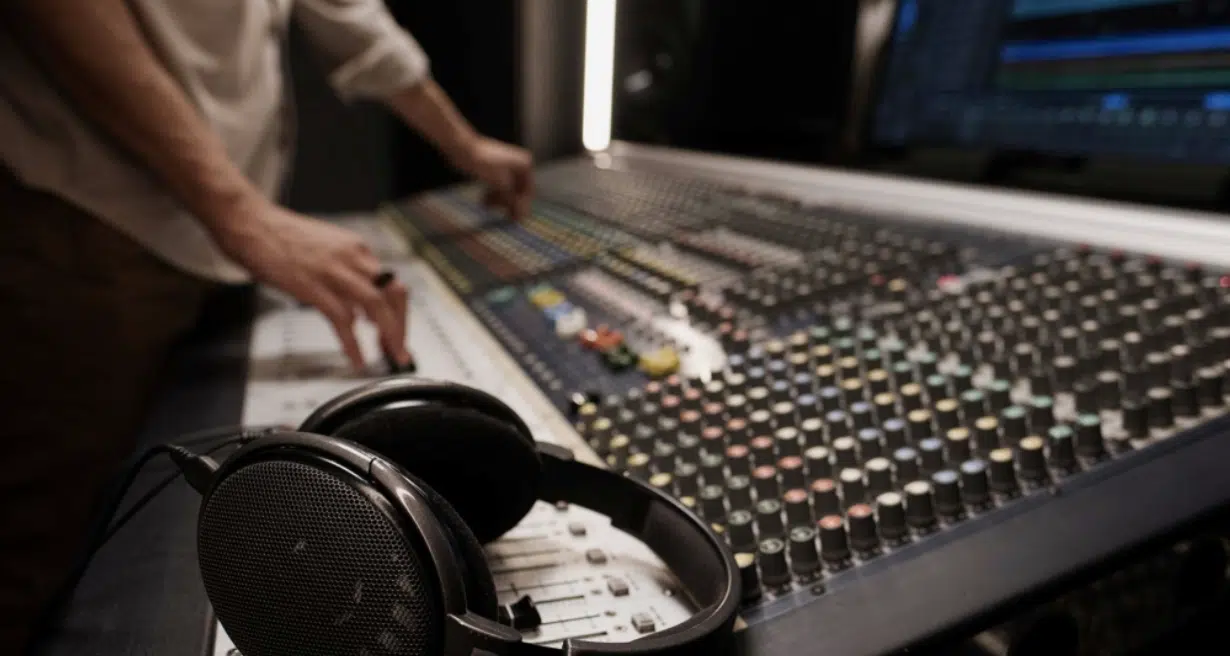
An audio engineer can use various musical tools, from microphones and amplifiers to patchbays and digital interfaces.
Each piece of equipment has nuances, and the engineer is responsible for knowing them intimately.
For instance, an audio engineer must discern which microphone works best for a raspy hip-hop artist versus an energetic rock vocalist.
#3. Sonic Problem Solving
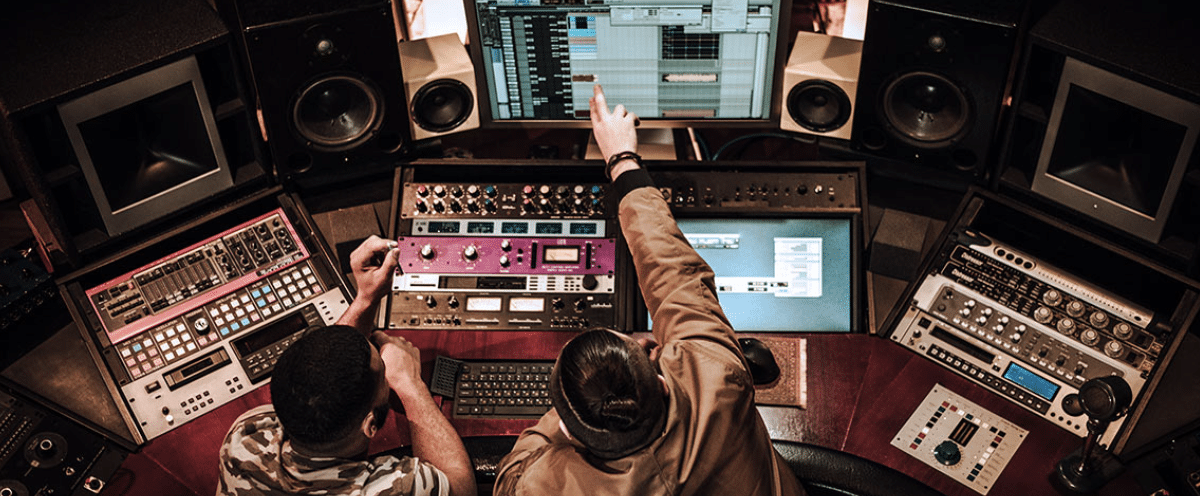
Not every recording session goes smoothly…
There might be ambient noises, or perhaps the instruments don’t sound particularly harmonious.
An audio engineer works as a sonic detective 一 pinpointing and rectifying issues.
This could involve anything from changing the instruments’ positioning to tweaking the recording space’s acoustic properties.
#4. Manipulating Audio Like a Boss
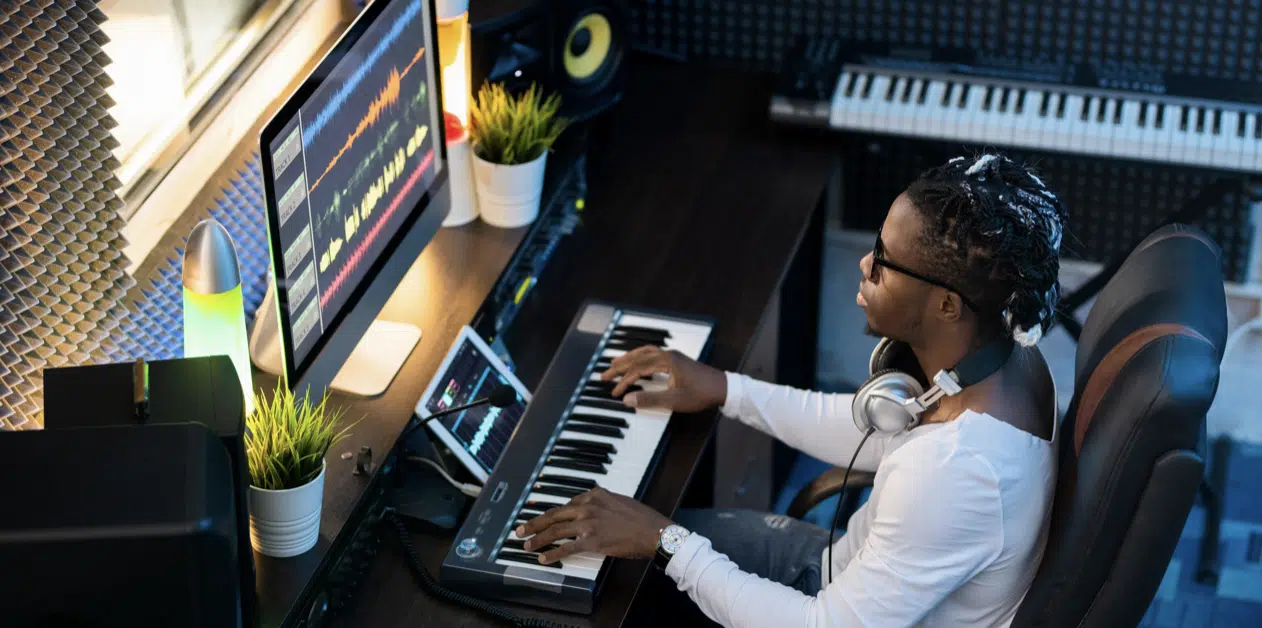
While technical expertise forms the foundation, the magic lies in the engineer’s ability to finesse sound.
They don’t just work with buttons and dials; they work with:
- Emotions
- Ambiance
- Energy
A meticulous ear is essential, as is a knack for experimentation.
It’s about taking a musician’s abstract description (e.g., “ethereal,” “punchy,” or “haunting”) and translating it into tangible audio brilliance.
The best audio engineers walk the line between technician and artist and use their tools to paint sonic masterpieces.
#5. Post-Production
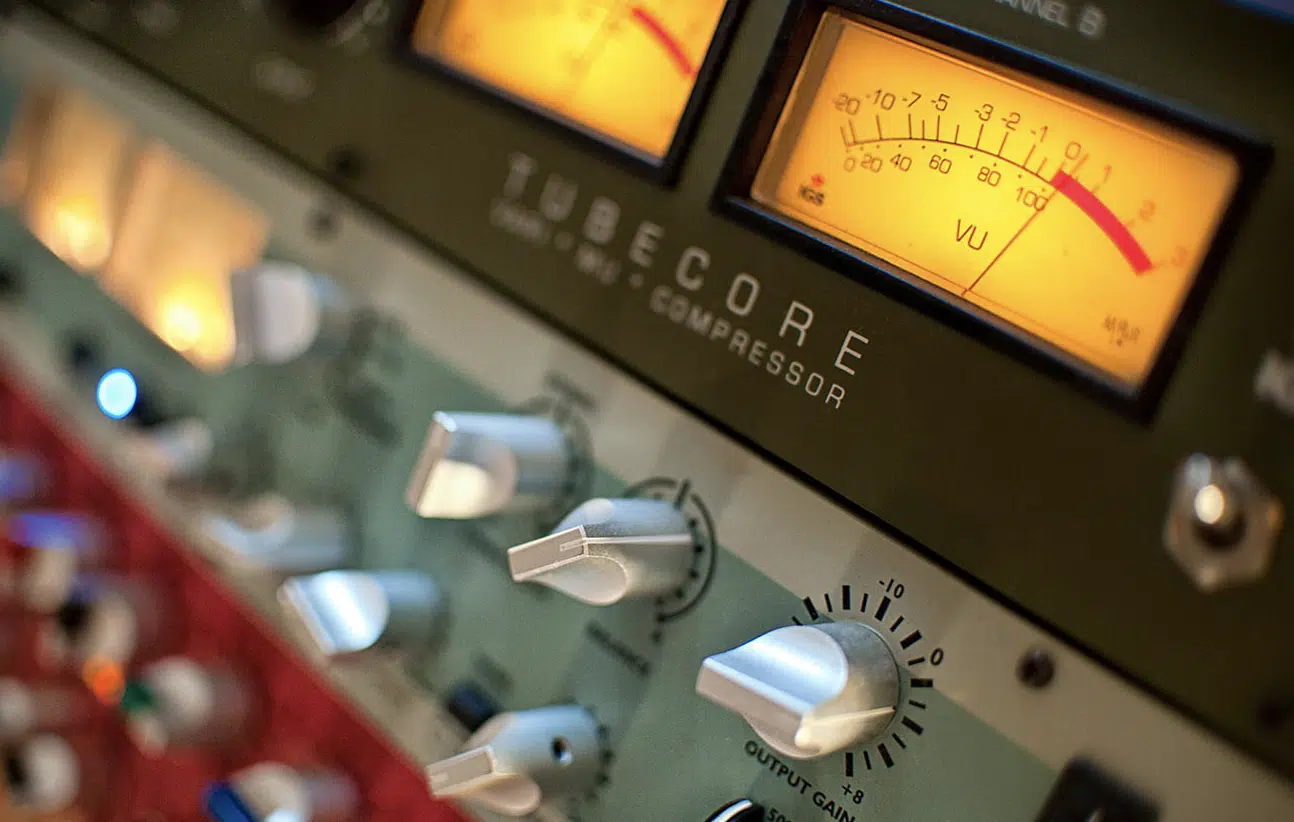
Layering sounds, enhancing specific aspects of tracks, and removing any inadvertent noise are all part of their routine.
You can think of this stage as a jeweler refining a diamond to make it shine its brightest.
#6. Staying Updated
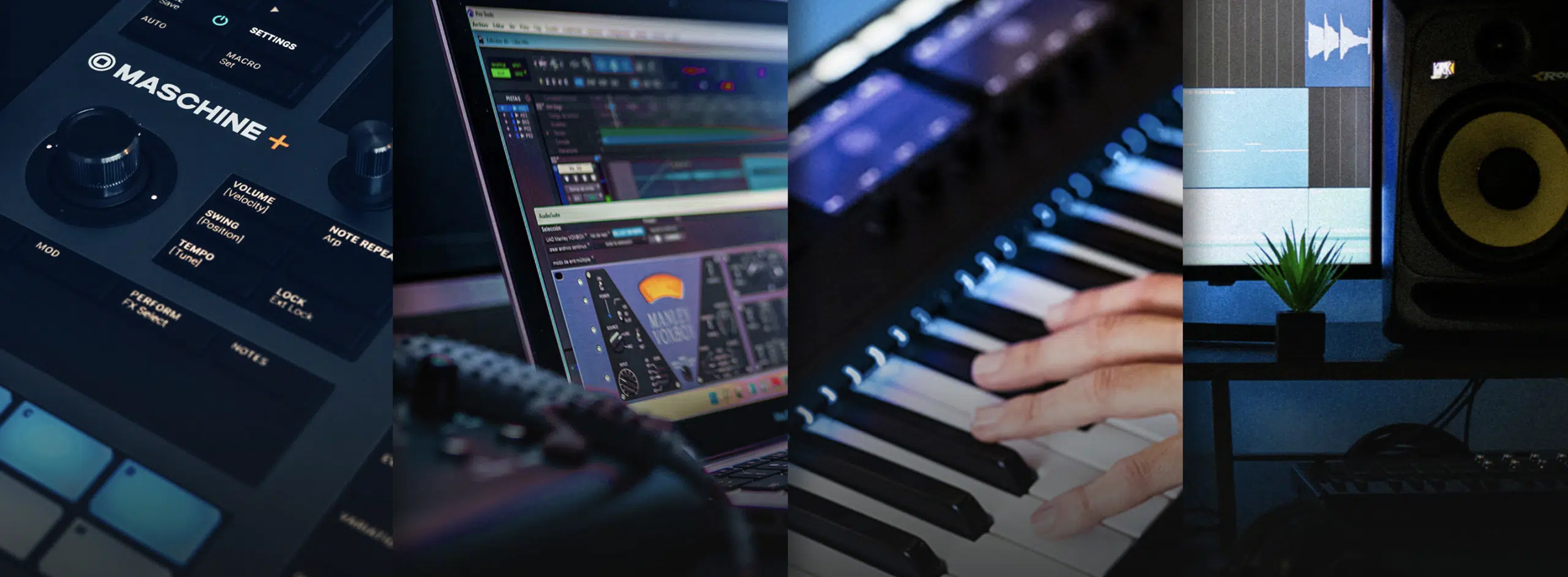
The sound world is ever-evolving, new technologies are always emerging, and trends are constantly changing.
Audio engineers must stay on top of this fast-paced realm and stay ahead of the game.
Whether it’s a breakthrough in digital sound processing or vintage recording techniques, staying informed ensures audio engineers are always delivering top-notch sound quality.
If you’re shooting to become a professional audio engineer, you must know about all these different elements.
-
Sound Quality Basics: What Every Audio Engineer Must Know
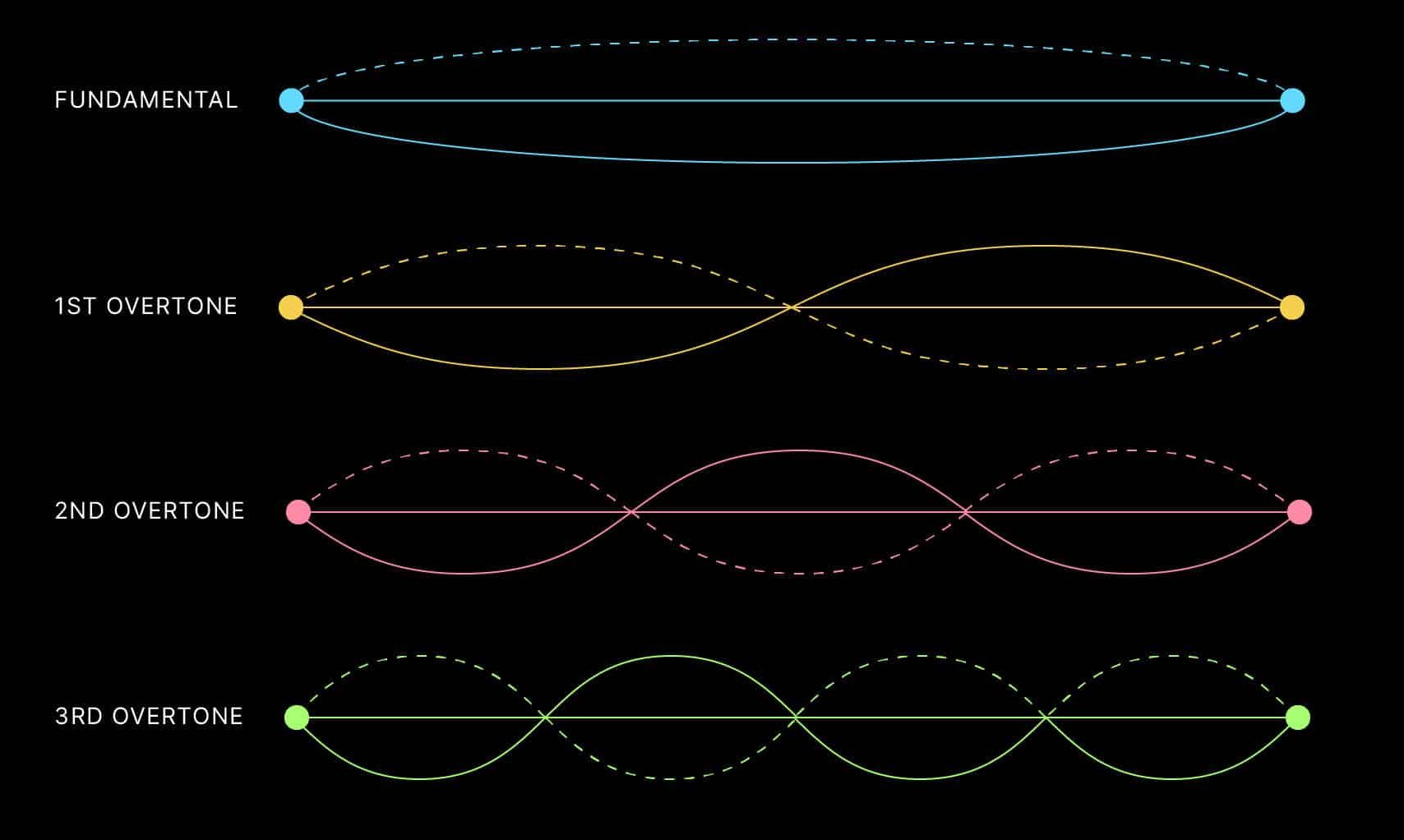
Sound waves, essentially pressure changes in the air (or other medium), are perceived by our ears and processed by our brains.
For audio engineers, knowing how these waves behave is the foundation of their profession.
Different frequencies evoke different emotions and perceptions, like:
- Bass frequencies 一 Might be felt more than heard, providing the song’s groove.
- Treble frequencies 一 Capture the shimmering cymbals and clear vocals.
An audio engineer’s mastery lies in balancing these to perfection, which you should already have some experience in as a music producer.
The environment plays a significant role in sound quality.
If you’ve ever spoken in an empty room and heard your voice echo, you’ve encountered acoustics in play.
Audio engineers often manipulate these room acoustics, using diffusers, bass traps, and more, to achieve the desired sound.
NOTE: Anomalies like distortion or feedback aren’t rare in raw recordings, and the science of sound assists audio engineers in identifying these issues.
Utilizing tools like EQs, they can precisely tweak and rectify any imperfections, ensuring a flawless auditory experience.
-
Technical Aspects of the Job
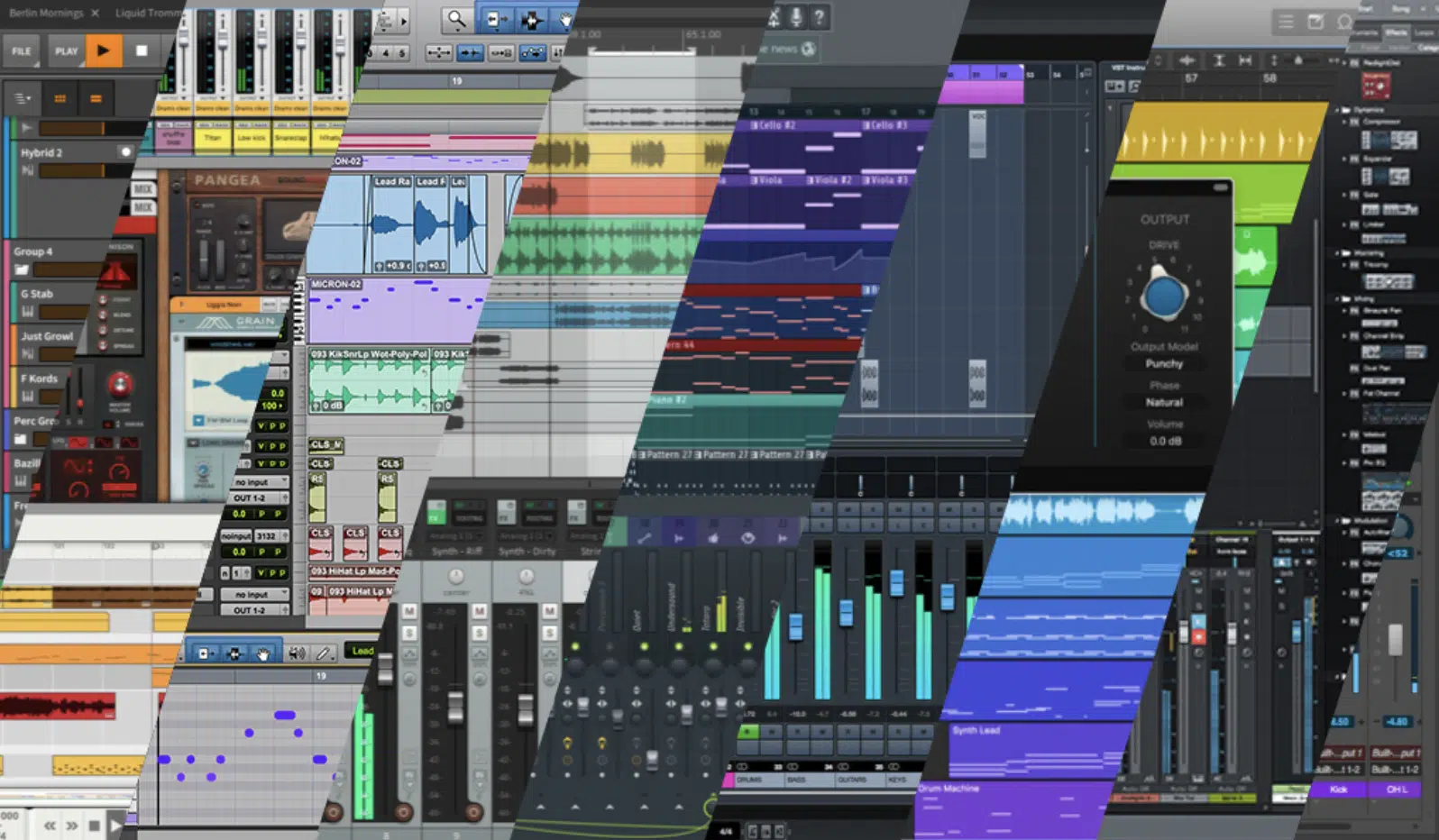
Audio engineering is filled with gadgets, software, and evolving technology.
An audio engineer must have a profound understanding of the tools at their disposal, whether it’s the latest Digital Audio Workstation (DAW) or vintage analog equipment.
Digital recording technology, for instance, has revolutionized how recordings are made.
DAWs like Pro Tools or Ableton Live allow for multitrack:
- Recording
- Editing
- Digital processing
This empowers audio engineers to make real-time adjustments.
But it’s not just about digital… Many audio engineers still swear by the warmth of analog recordings, using vintage microphones and reel-to-reel tape machines.
The key is knowing when and how to use which tool.
Signal flow is another crucial aspect you’ll need to know if you want to become a professional audio engineer.
Imagine wanting to add an effect to a singer’s voice.
The audio engineer must ensure the voice’s signal passes through the right processors, in the correct order, before reaching the listener’s ears.
Lastly, with the explosion of streaming platforms and varying audio formats, an engineer needs to be adept at understanding different codecs.
This will ensure that music sounds consistent across platforms like Spotify, Apple Music, or vinyl records.
How To Become an Audio Engineer
Breaking into the audio engineering scene requires a blend of academic acumen, hands-on experience, and a genuine passion for sound.
Let’s delve deeper into what it takes to establish oneself in this hypnotizing world.
-
Academic Hustle vs. Self-Taught Mastery: The Pros & Cons
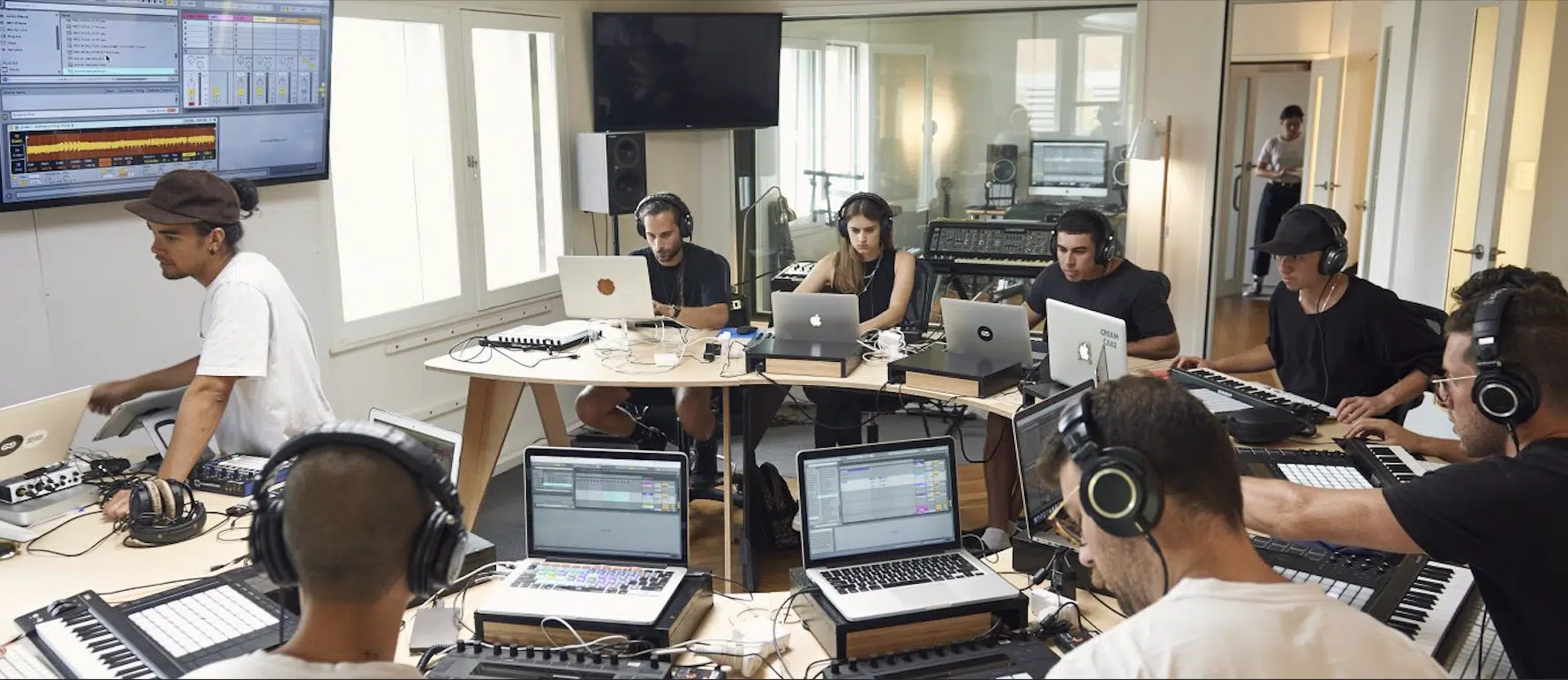
Pursuing formal education in audio engineering can offer structured learning and exposure to industry-standard tools.
This can include accolades like an associate or bachelor’s degree.
Schools like Berklee College of Music or SAE Institute provide specialized courses covering audio production 一 from acoustics theory to music studio techniques.
Academic settings also offer the advantage of mentorship.
Being under the strict guidance of experienced professionals can help provide:
- Insights
- Real-world examples
- Connections that can be invaluable for audio engineers
On the other hand, many successful audio engineers are self-taught.
With the endless variety of online resources, tutorials, and software, driven individuals can chart their learning paths.
NOTE: Though primarily known for other roles, artists like Kanye West and Dr. Dre have showcased impressive engineering skills without traditional schooling.
Ultimately, the choice boils down to your personal preference.
While formal education can provide a strong foundation, nothing beats the practical experience and personal drive of someone passionate about the craft.
So, do what feels right for you, and remember it’s all about hustle and drive.
-
Hands-on Experience: Diving into Real Sessions & Projects
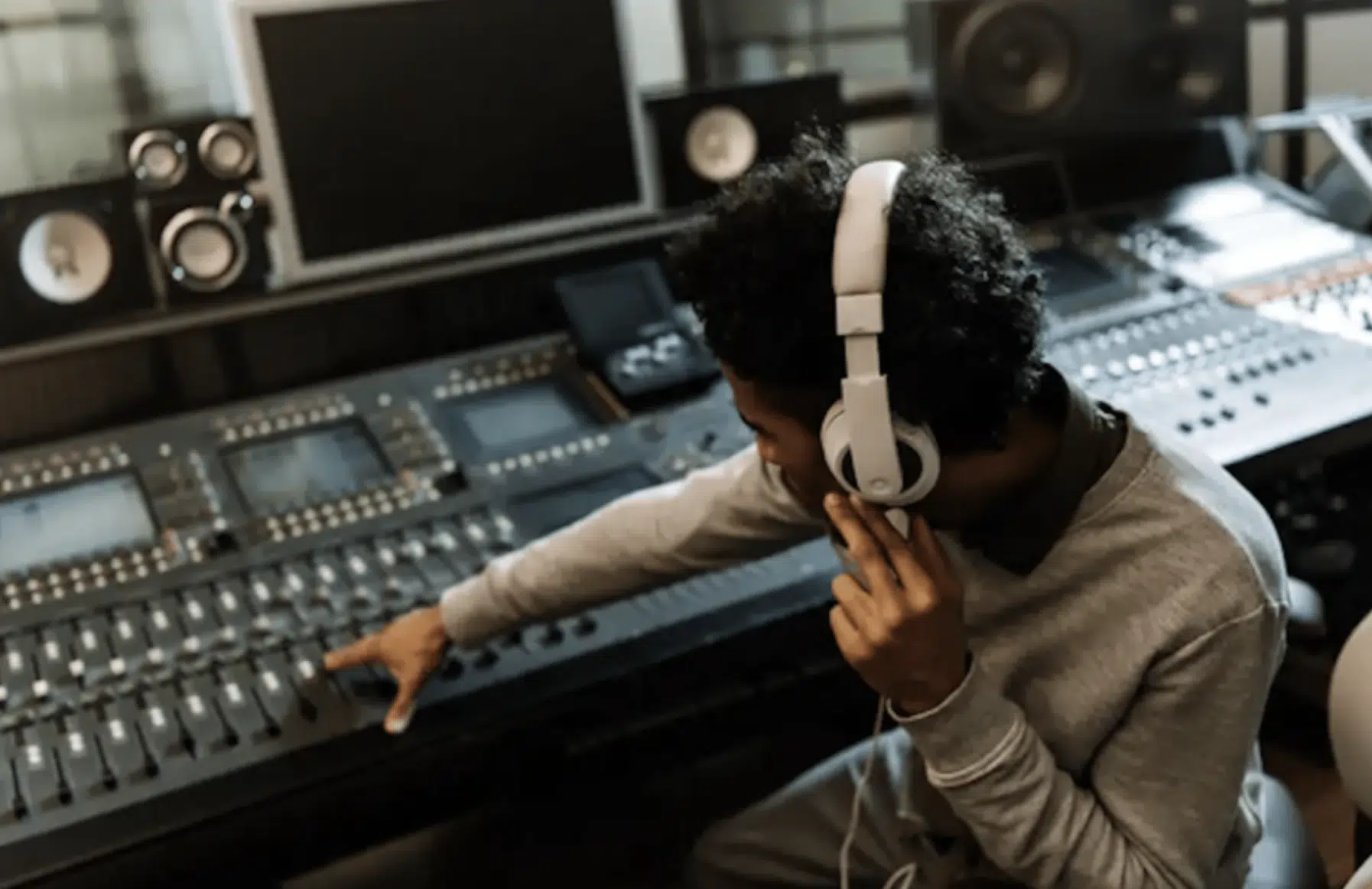
Music Theory, while essential, is half the story; real growth occurs when you’re at the console, making decisions in real time.
Starting as an intern or assistant at recording studios can offer a firsthand view of the day-to-day operations of what exactly a professional audio engineer does.
Each unique session is a learning experience.
Observing how senior engineers interact with artists, solve problems, and make artistic decisions can be incredibly enlightening.
Working on personal projects or collaborating with local musicians can also be a goldmine for practical experience.
Part of the journey includes:
- Experimenting
- Making mixing mistakes
- Learning from hands-on experience
Just remember that every genre presents challenges 一 mixing a rock band differs from mastering a jazz trio or tweaking a hip-hop track.
The more varied the experiences, the more versatile and adaptable the audio engineer becomes.
-
Building a Professional Audio Engineer Portfolio
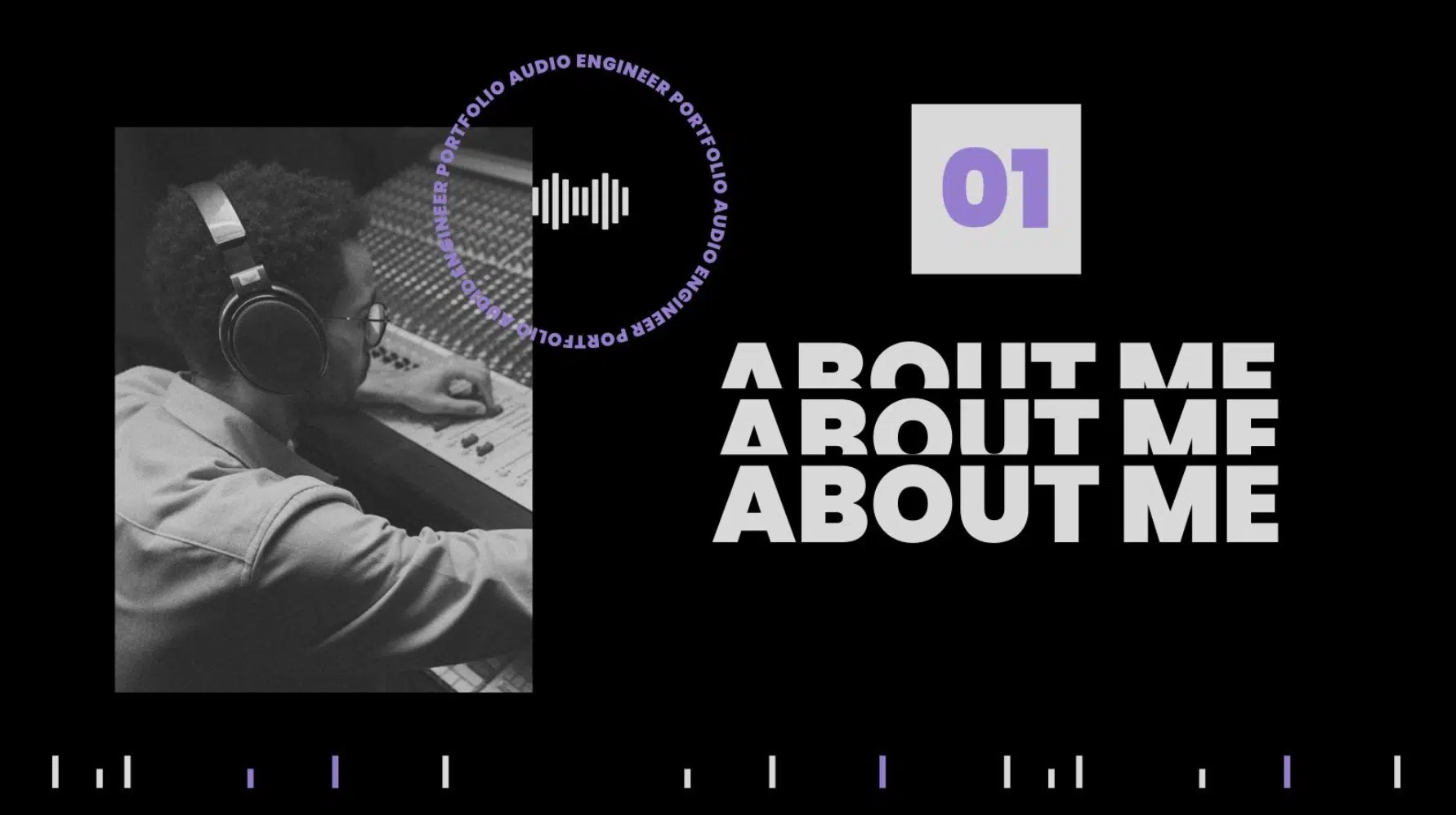
Just like in music production, a professional portfolio is your business card.
It showcases the extent and depth of your work, giving potential clients a taste of what you bring to the table.
Make sure to showcase your very best work, and remember that quality trumps quantity every time.
Whether it’s a track you mixed that got local radio play or a band you recorded that received rave reviews, highlight those achievements.
You should always describe (in immense detail) the:
- Challenges you’ve faced
- Solutions implemented
- Various tools you used
This not only showcases your technical prowess but also your problem-solving abilities.
As you grow in the industry, keep updating your portfolio.
It’s a dynamic tool that evolves with your audio engineer career 一 reflecting your growth and adaptability.
Essential Equipment and Techniques
Navigating the technical arena of audio engineering is a journey filled with intricate tools and evolving techniques.
Ensuring your toolbox is up-to-date is paramount in delivering top-tier sound quality.
Audio engineers work with many different pieces of equipment and incorporate many music techniques, so let’s dive in.
-
The Mixing Console: The Heart of Any Studio
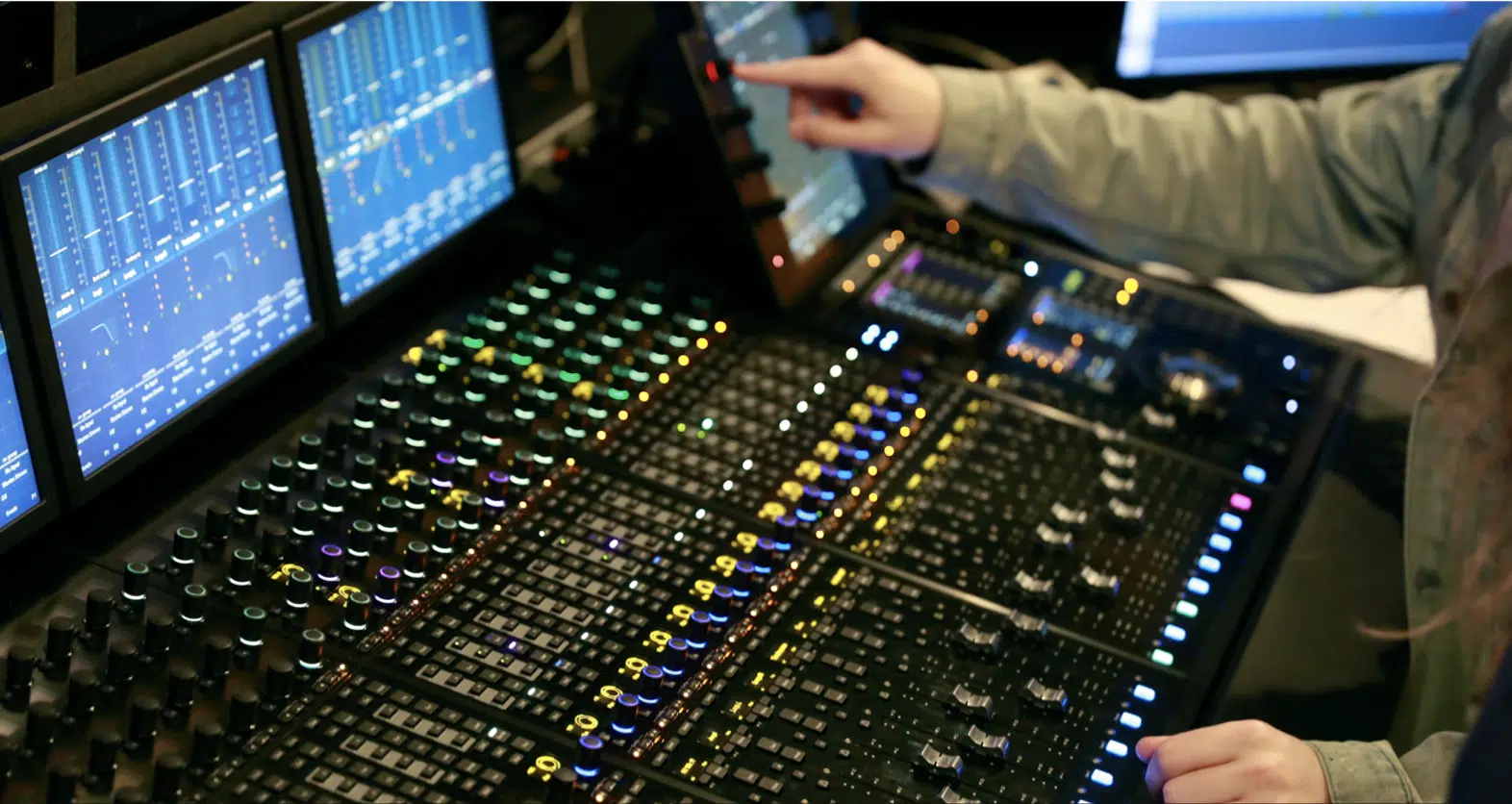
At the core of any studio lies the mixing console, a powerful hub that blends multiple audio signals into a cohesive sound.
Essentially, it’s a multi-channel equalizer, providing control over:
- Volume
- Panning
- Audio effects
Each channel strip on a console handles one audio source.
For instance, in a rock song, there could be individual channels for the lead guitar, rhythm guitar, bass, drums, and vocals.
Modern consoles, such as the SSL Duality or the Neve 88RS, integrate analog warmth with digital flexibility.
They offer features like automation, which allows audio engineers to pre-set fader movements or mute groups during a mix.
NOTE: The choice of a console often boils down to personal preference and the specific needs of a project.
While some engineers might vouch for the warmth of vintage consoles, others might prioritize the precision of digital boards.
The key is to know your console inside out, end of story.
Understanding signal flow, the intricacies of the EQ section, and the nuances of onboard effects can transform a good mix into a great one.
-
Digital Domination: Audio Software Tools
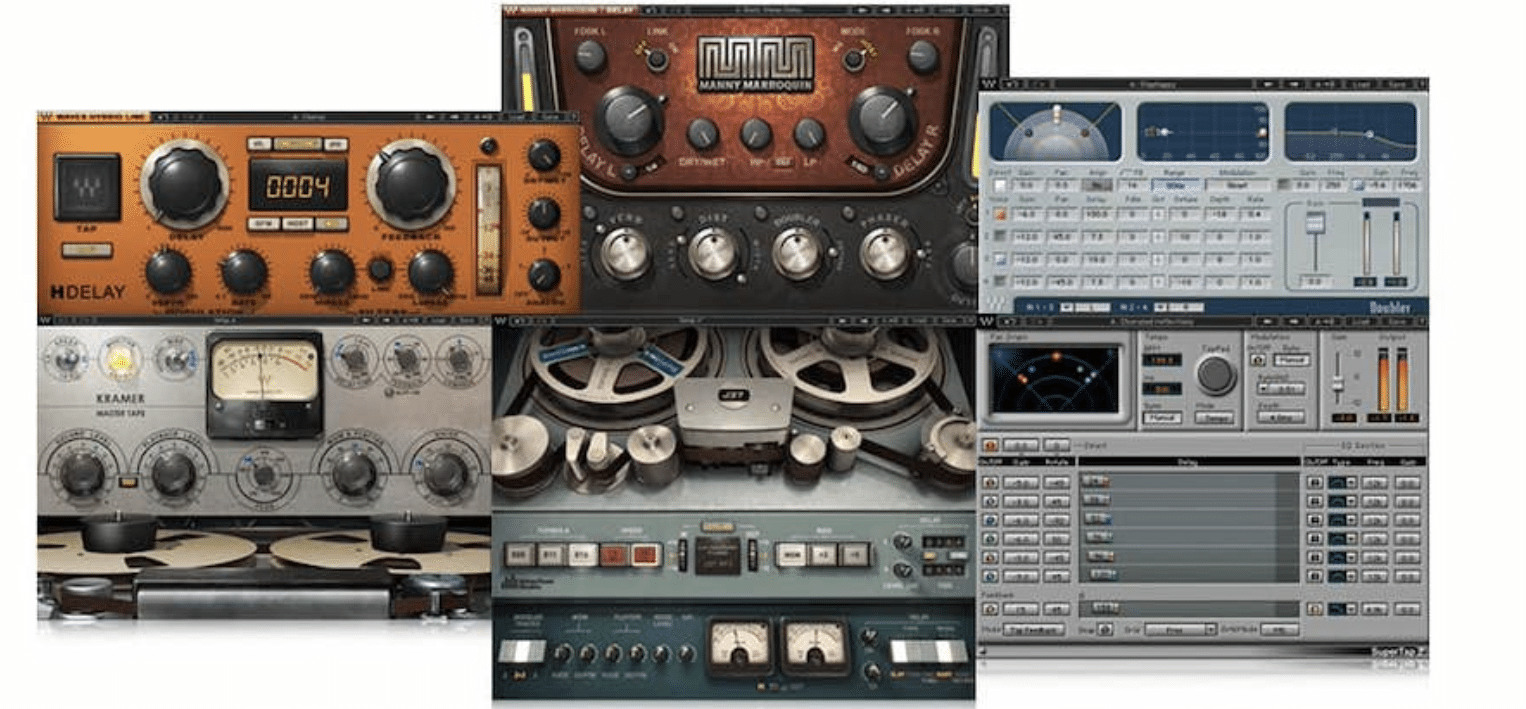
Digital Audio Workstations (DAWs) have revolutionized the audio industry, as we touched upon.
Software like Pro Tools, Logic Pro, and Ableton Live provide powerful platforms for audio engineers to:
- Recording
- Editing
- Mixing/Mastering
Plugins are additional software that can be loaded into a DAW; replicating everything from vintage compressors like the LA-2A to modern spectral analyzers.
The convenience of DAWs means engineers can work anywhere, whether it’s a state-of-the-art studio or a home studio setup.
For instance, Billie Eilish’s multi-award-winning album was predominantly produced in a home studio using Logic Pro X.
However, while the tools are vital, it’s the ears and skills of the engineer that make the real difference.
The software merely provides a canvas 一 you’ll be the one painting the masterpiece.
As music technology evolves, so does software.
Regular updates, new plug-ins, and a wide range of emerging DAWs mean continuous learning is pivotal in the digital domain.
NOTE: This form of thinking shouldn’t be a problem for those of you who are music producers, as it’s the same principle.
Staying updated is key whether it’s sound recording, engineer working, or a sound engineering job.
-
Recording, Editing, and Mastering
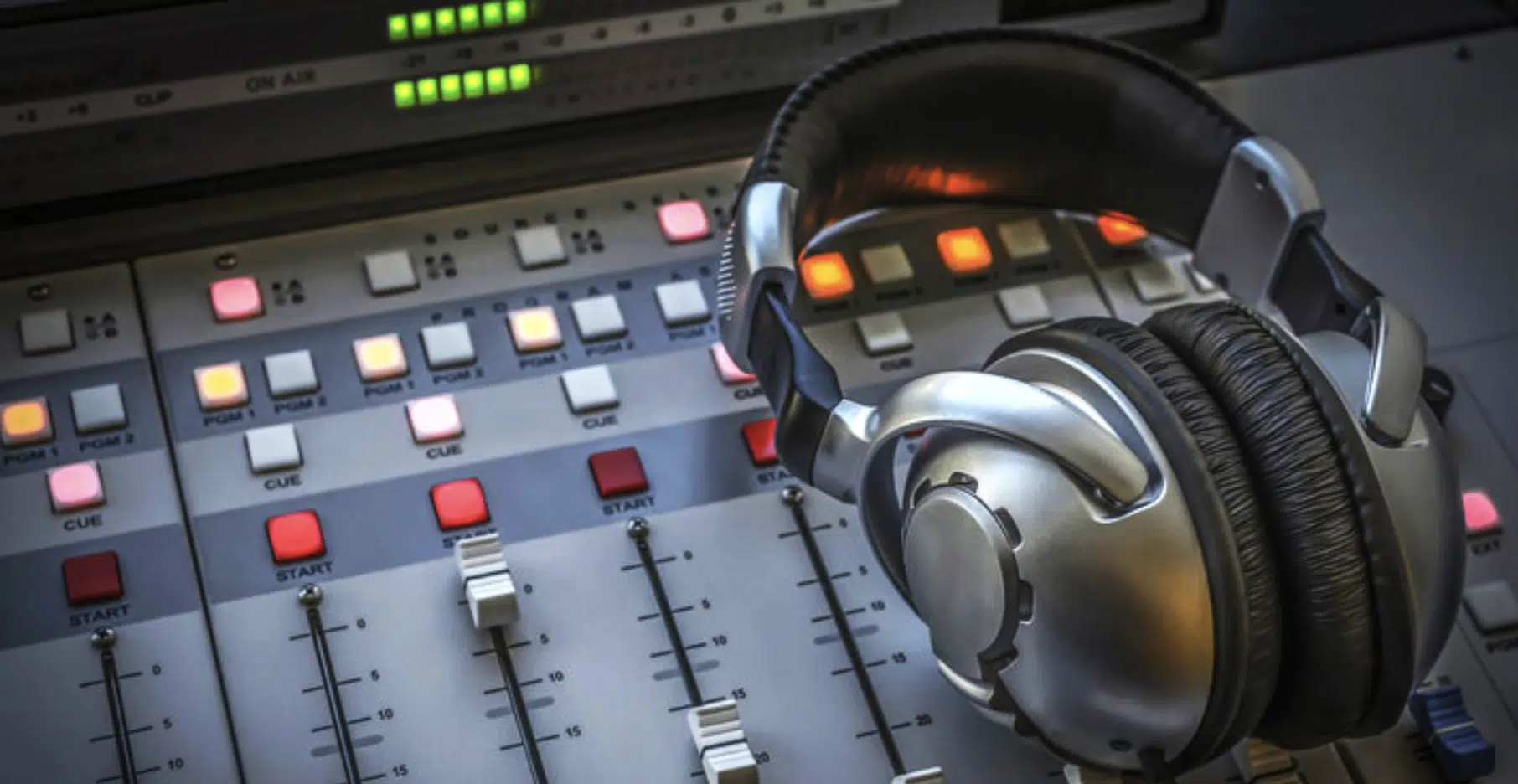
When it comes to the role of an audio engineer, recording is the first step.
Recording involves capturing performances in the highest fidelity, as well as understanding microphones, pre-amps, and room acoustics.
Legendary recording studios (like Abbey Road or Electric Lady) are renowned for their unique acoustic characteristics.
Editing is going to be the next step in this intricate process.
When editing, you’re going to implement certain techniques that involve:
- Fine-tuning the recordings.
- Ensuring rhythm, pitch, and timing perfection.
This could mean quantizing a drum track for tightness or pitch-correcting a slightly off vocal using tools like Melodyne.
Mastering is the final polish in the audio engineering (and production) process.
It ensures consistency across tracks in an album and optimizes the music for various playback systems 一 from high-end speakers to smartphone earbuds.
Mastering engineers like Bob Ludwig have become legends in their own right, adding the final sheen to countless hits.
Each of these pillars requires distinct skills and tools.
However, they interlink seamlessly and make sure the journey from performance to polished track is smooth.
NOTE: As with any craft, practice makes perfect.
The more hours spent recording, editing, mixing, and mastering, the more adept one becomes, intuitively knowing what a track needs.
-
Sound Effects: Bringing Life to Tracks
The delicate art of infusing sound effects into a track is like a painter adding intricate details to a canvas; every tiny touch can transform a basic piece into a masterpiece.
As an aspiring audio engineer, you’ll need to master different sound effects like:
#1. Layering Atmospherics
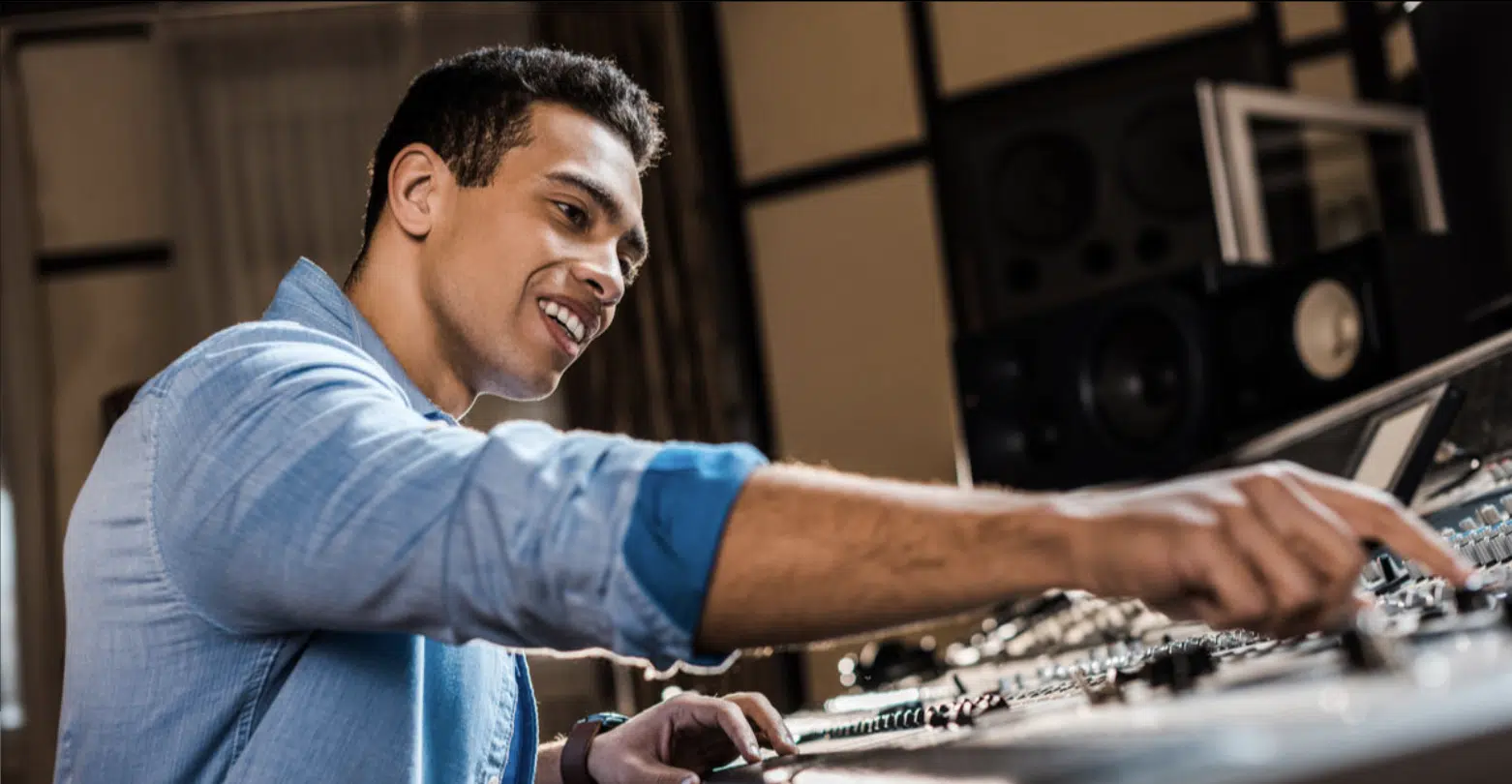
Consider the haunting echo of a distant church bell in a suspenseful movie scene.
Audio engineers strategically place these atmospheric sounds to evoke emotions 一 creating a more immersive experience for listeners.
#2. Enhancing Storytelling

In radio dramas or podcasts, the rustling of leaves might hint at an outdoor setting, while the soft murmurs of a crowd can depict a bustling market scene.
Audio engineers play a pivotal role in this auditory storytelling, ensuring the sound aligns perfectly with the narrative.
#3. Accentuating Music Dynamics
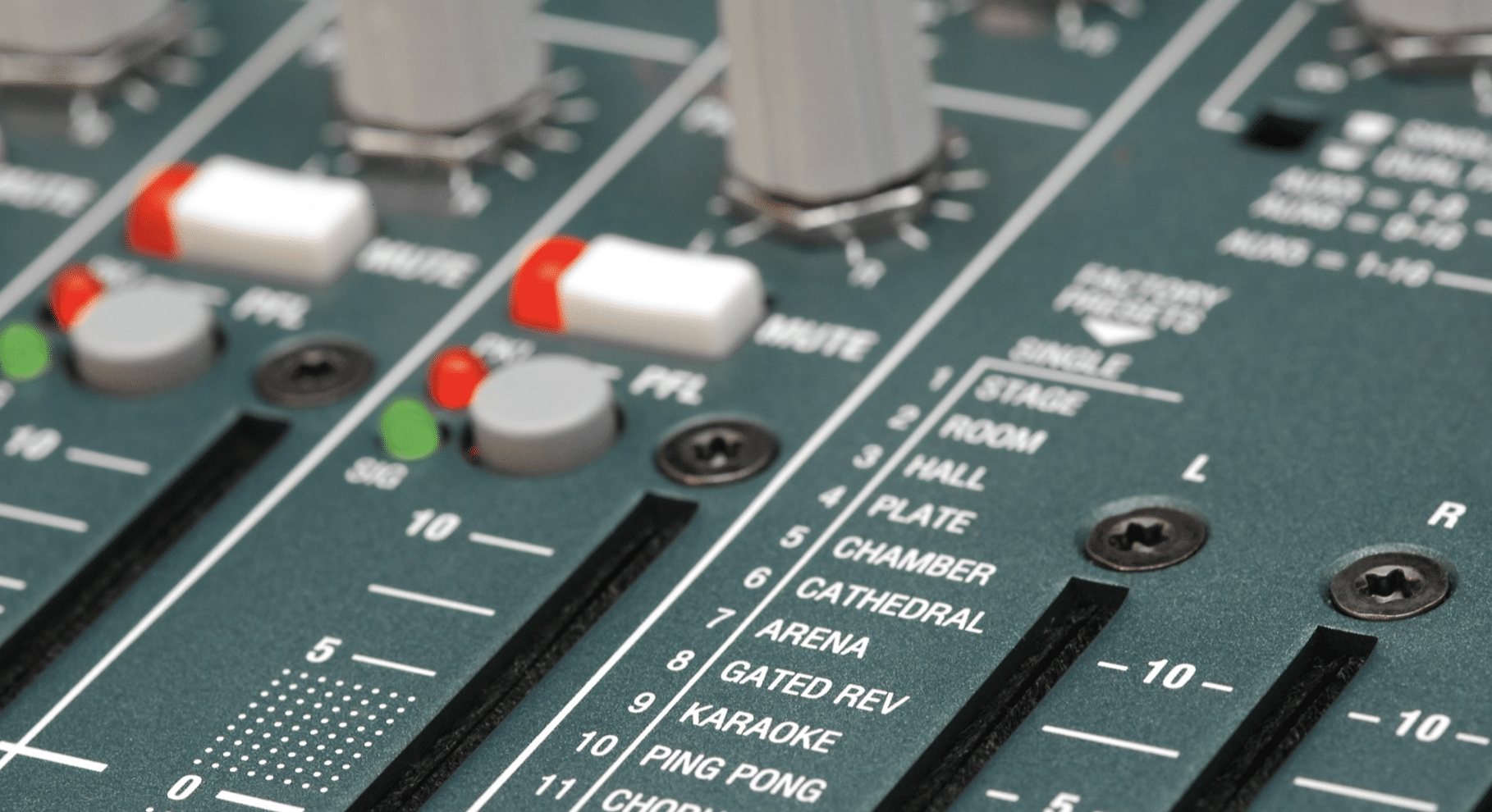
In music tracks, effects like reverb or delay can be used to emphasize certain instruments or vocals.
For instance, an echoing guitar solo in a rock ballad can evoke a sense of depth.
As an audio engineer, you must know how to incorporate all of these dynamic processes.
#4. Creating Rhythmic Textures
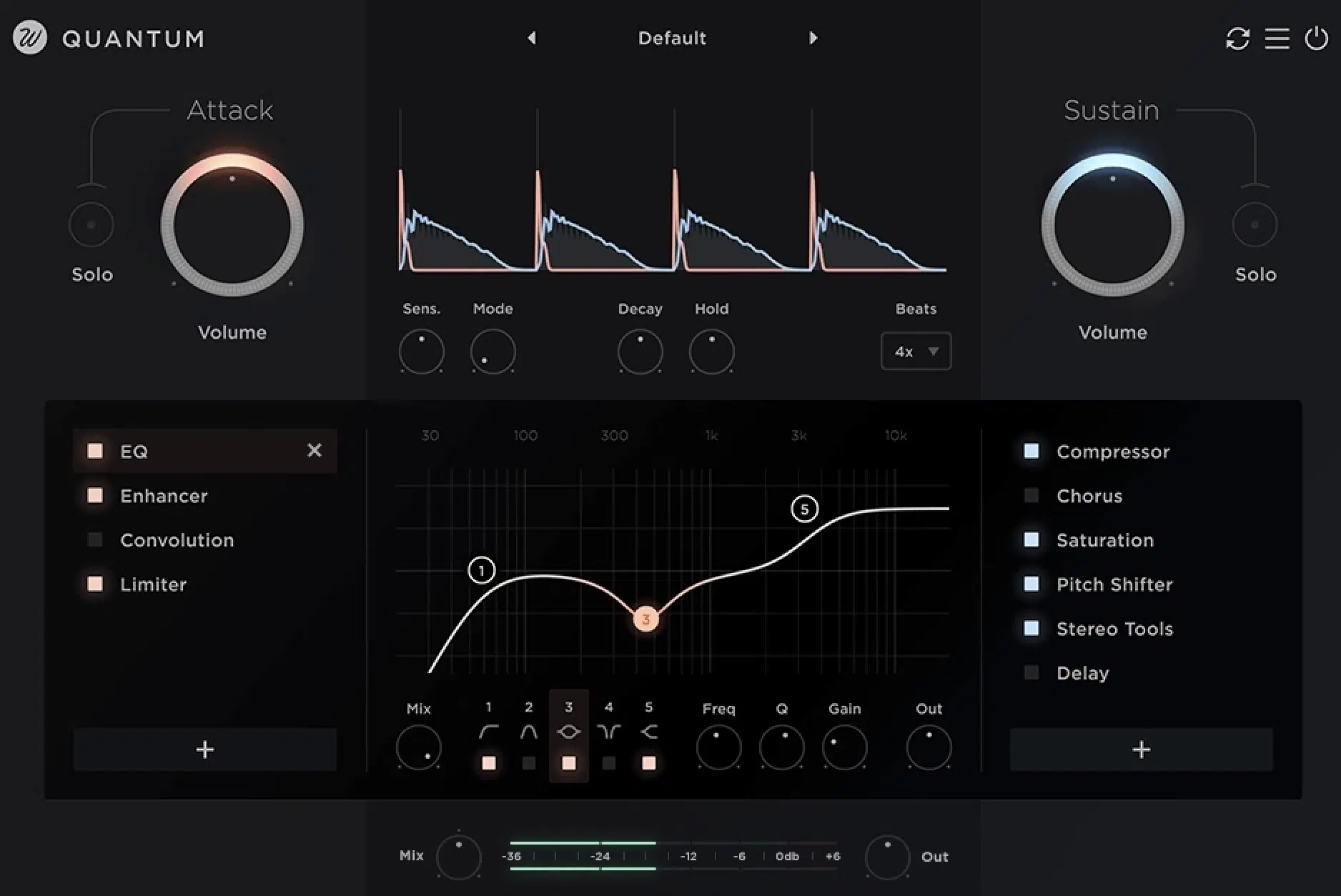
Percussive elements, such as raindrops or handclaps, can be subtly integrated into a song’s rhythm.
A classic example is the rhythmic chatter of a typewriter in the background of a song 一 offering a unique beat and texture.
#5. Sound Design in Gaming
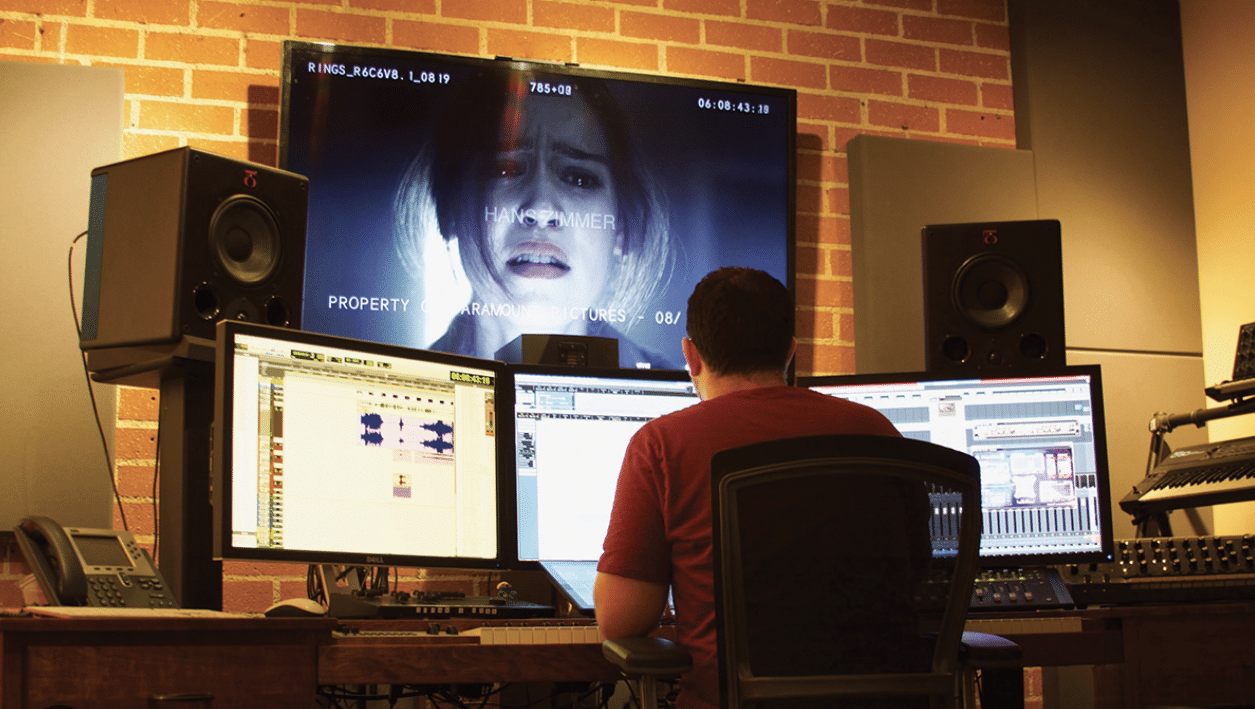
In video games, the role of sound effects is paramount.
This can include different sound design elements like:
- The draw of an arrow
- Footsteps of an approaching enemy
- The distant roar of a dragon
All these effects are meticulously crafted by audio engineers to enhance gameplay and player immersion.
Mastering the art and science of sound effects requires not only technical know-how but also a deep understanding of the emotional and psychological impact of sounds.
By understanding the content’s purpose and the audiences’ expectations, an audio engineer can incorporate effects that elevate the overall auditory experience.
-
Audio Equipment: Investing in Quality
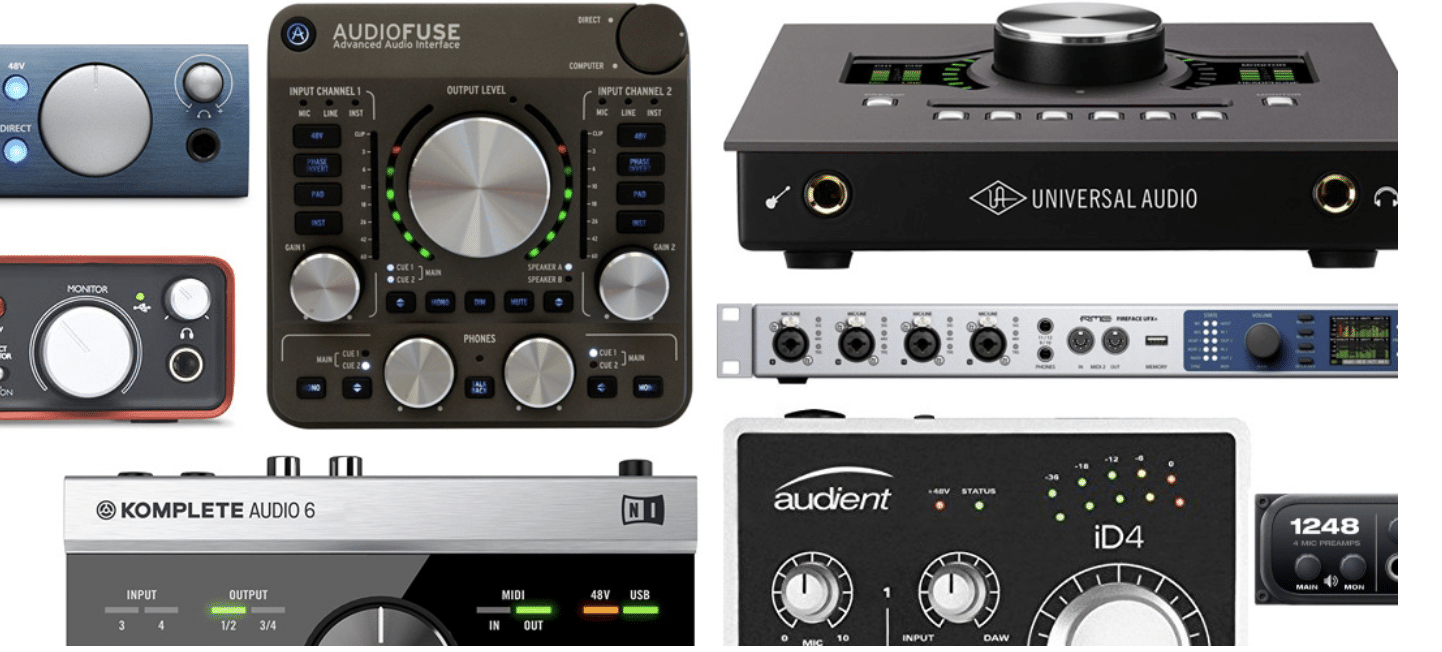
Quality equipment is an investment that audio engineers should never overlook.
Every piece plays its part, from microphones capturing the nuances of a voice to monitors that accurately reproduce sound.
The choice of audio gear in a recording studio often reflects the audio engineer’s style.
While some swear by the U87 microphone for vocals, others might lean towards the C414 for its versatility.
Analog gear, like the classic Studer tape machines or the revered Pultec EQs, brings distinctive warmth and character to recordings.
However, high quality doesn’t always mean high cost…
With brands like Focusrite or Audio-Technica, audio engineers can access reliable gear without breaking the bank.
The mantra is simple: know your equipment.
An intimate understanding of gear, its strengths, and its quirks can elevate the quality of work, irrespective of the price tag.
When editing, mixing, and mastering, audio engineers use what they know, and so should you.
Which Musical Destiny is Right For You
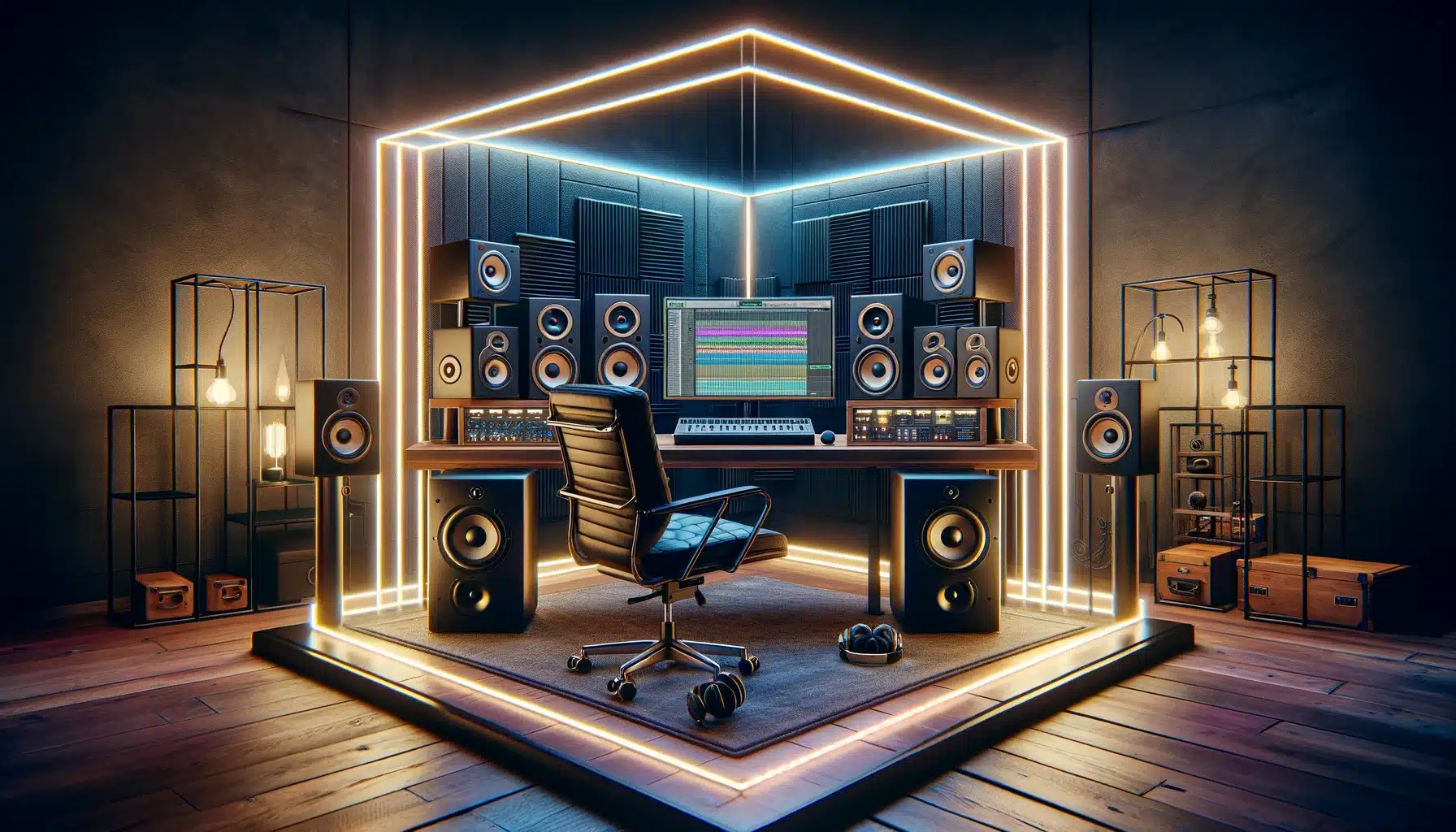
When choosing a career in the music industry, two titans are audio engineers and music producers.
Audio engineering and music production often work hand in hand, creating a synergistic bond between the two.
- Audio engineering 一 Focuses on the technical aspects of sound.
- Music production 一 Hones in on the creative process.
Knowing the differences and similarities can help you make an informed decision when choosing a career path.
A music producer guides the artistic direction, chooses instruments, and guarantees the overall vibe matches the vision.
Dr. Dre’s production genius in albums like “The Chronic” stands as a testament to this role.
Audio engineers, on the other hand, ensure that the producer’s vision is technically realized, adjusting frequencies, managing inputs, and finessing the final mix.
Consider them the cinematographers of the audio world…
Both roles demand a deep passion for music, but their focal points differ.
While a producer might emphasize a song’s hook or bridge, an engineer would be more concerned about the vocals’ clarity or the bass’s punch.
NOTE: A sound engineer is another prestigious position that also focuses on recording, mixing, and mastering.
They are the technical wizards behind pristine audio quality.
-
Ensuring the Best Sound Quality for Tracks
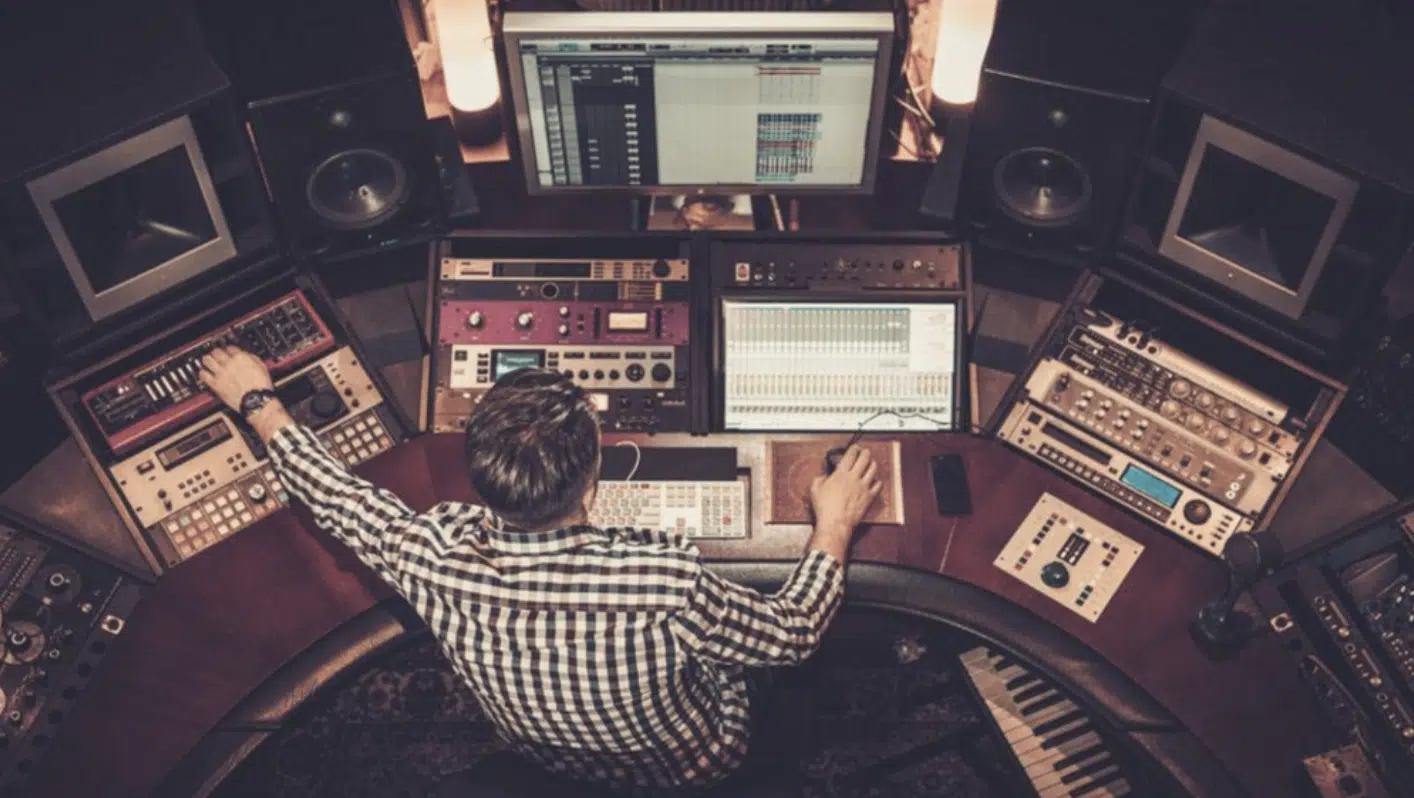
Whether you’re an audio engineer or music producer, the end goal remains consistent: achieving impeccable sound quality.
This means:
- Clear vocals
- Well-defined instruments
- A balanced frequency spectrum
Techniques such as equalization, where specific frequency bands are boosted or reduced, play a pivotal role.
For instance, cutting low-mid frequencies can alleviate a muddy mix 一 ensuring vocals shine through.
Dynamic processing, like compression, ensures audio levels are consistent.
The iconic “pumping” sound in Daft Punk’s “One More Time” is a deliberate use of compression for stylistic intent.
Reverberation and delay add depth and space to tracks.
They can make vocals sound like they were recorded in a cathedral or provide a haunting echo to a guitar solo.
Ultimately, sound quality isn’t just about technical precision; it’s about serving the song.
The choices of a good audio engineer should always amplify the emotion and intent of the music.
-
Sound Designers, Mixing Engineers, and Mastering Engineers
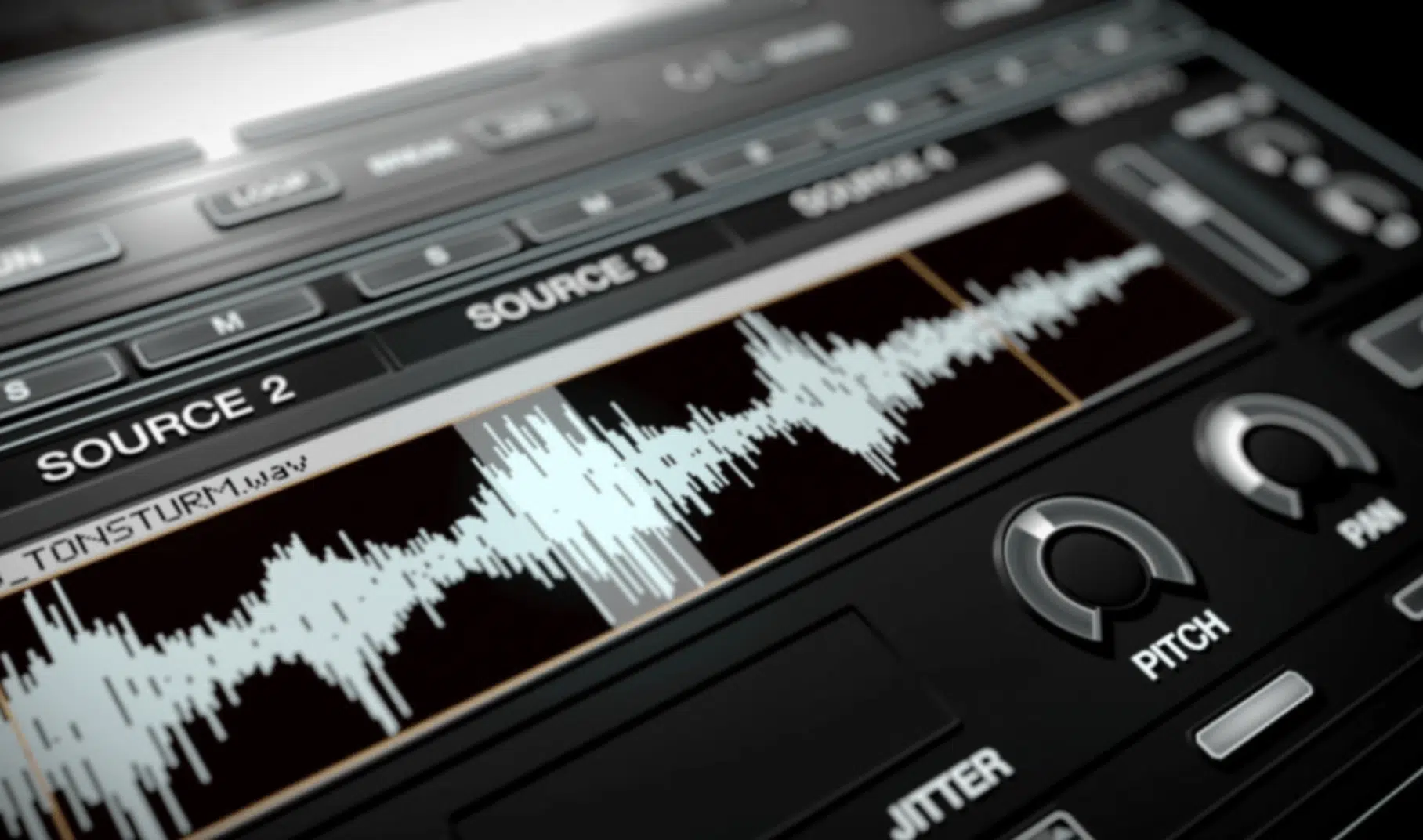
Sound designers, mixing engineers, and mastering engineers are uniquely positioned in the audio industry.
Sound designers craft the auditory elements of a project, whether it’s the ambient noises in a video game or the swoosh of a superhero’s cape in a movie.
Ben Burtt, who designed the lightsaber hum and Darth Vader’s breathing for Star Wars, showcases the power of sound design.
Mixing engineers work magic on individual audio tracks of a recording 一 blending them into a cohesive whole.
The work of a mixing engineer ensures that each element (from vocals to the faintest percussion) occupies its perfect space in the soundscape.
Chris Lord-Alge’s work with artists like Green Day and Muse highlights the art of mixing.
Mastering engineers are the closers that make sure everything is pristine before a song hits the airwaves.
A mastering engineer polishes audio tracks, ensuring consistency across listening platforms, from headphones to colossal speaker systems.
Engineers like Bob Ludwig, who lent his touch to Led Zeppelin and Radiohead, exemplify this role.
Each role requires a distinct skill set, though a foundational understanding of sound remains the core.
The objective is harmonious audio perfection, whether you’re creating a new sound effect or finessing an entire mix.
Diversifying one’s skill set can open doors to multiple audio avenues.
-
Extending Beyond Music: Video Games, Radio, and Television
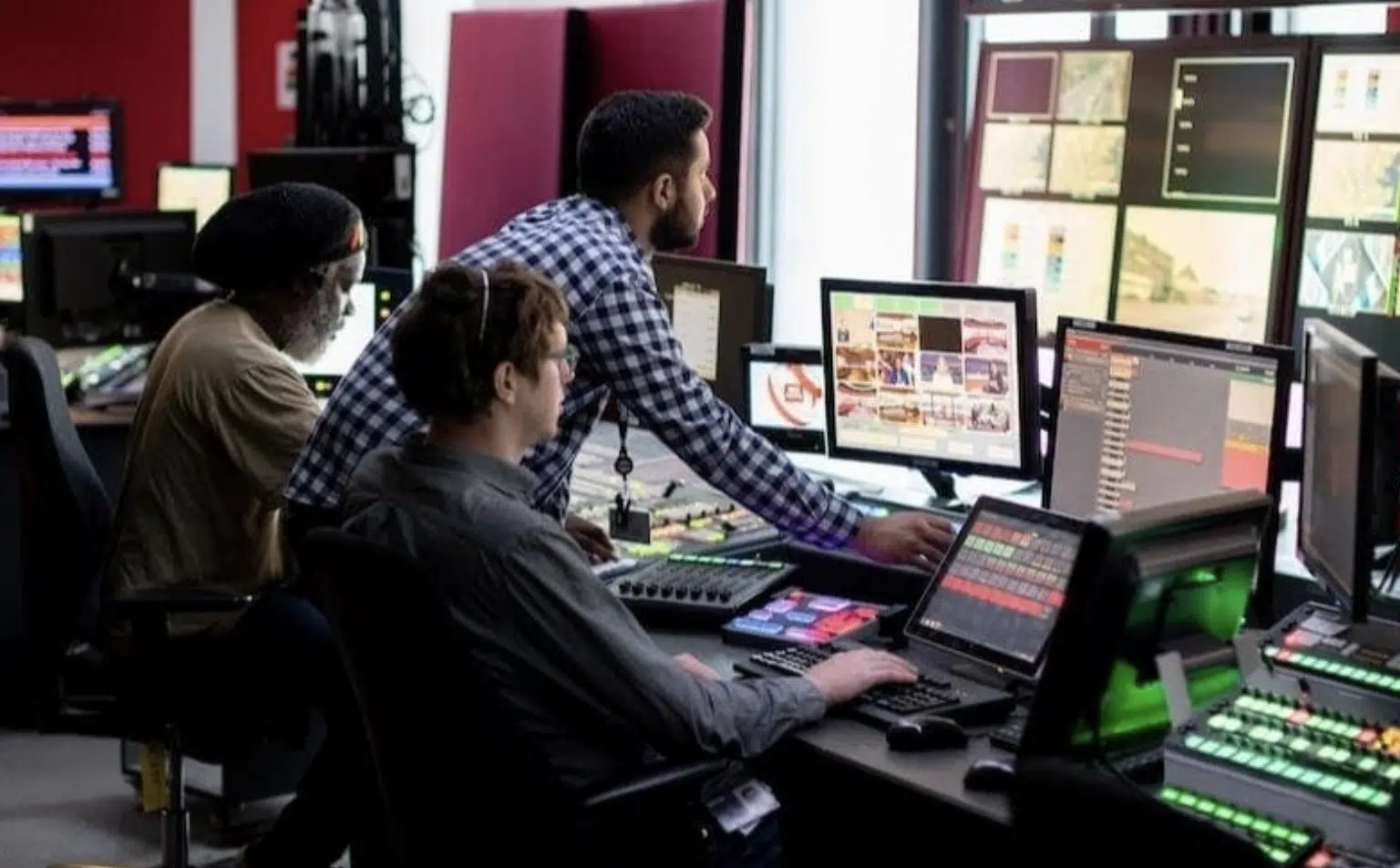
Audio engineering isn’t confined to music, as its genius is needed in many other fields as well.
In the world of video games, for example, musical mastery ensures the roar of an engine feels palpable or the footsteps in “Call of Duty” sound authentic.
Radio relies on sound engineers for clear broadcasts, while television banks on them for everything from dialogue clarity to sound effects in series like “Game of Thrones.”
Foley artists, a subset of audio engineering, create real-time sound effects for films 一 like the rustling of clothes or the clinking of glasses.
In essence, any medium that utilizes sound manipulation requires the expertise of an audio engineer.
The skills acquired in music can seamlessly translate to other audio avenues.
This expansive realm offers endless creative opportunities.
Whether mixing a chart-topping hit, designing sound for a AAA game, or ensuring a podcast sounds crisp, the world is your auditory oyster.
Whichever field of audio you’d like to conquer, hustle and determination are key.
Tips & Tricks for Aspiring Audio Engineers
Embarking on the journey of audio engineering is both exhilarating and demanding.
As with any craft, certain insider secrets can elevate one’s work from amateur to professional.
-
Staying Updated with Audio Production Trends
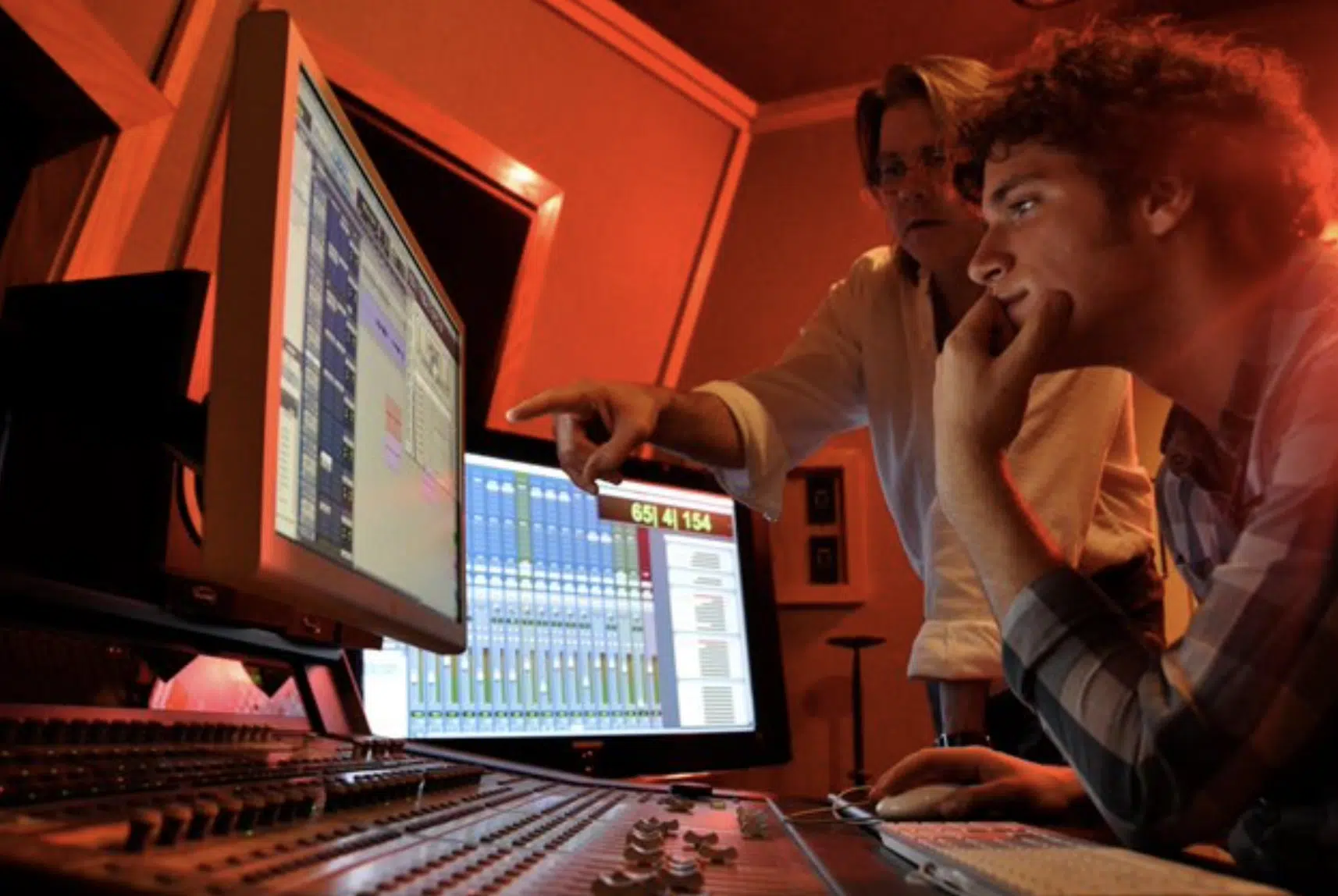
The audio world is continuously evolving, with new software, gear, and techniques continually emerging.
Staying updated is crucial for the relevancy and growth of an audio engineer or sound engineer.
Meaning, audio engineers must:
- Engage in online forums
- Attend workshops
- Join audio engineering communities
Platforms like Gearslutz and SoundOnSound offer a treasure trove of knowledge.
Remember that, in any career in the music industry, experimentation is your most treasured and beneficial asset.
Test new plugins, challenge traditional recording methods, and explore uncharted audio territories.
NOTE: While trends offer fresh perspectives, a solid foundation in audio basics is indispensable.
Embrace the new, but respect the time-tested.
-
Mastering the Art of Live Sound Mixing
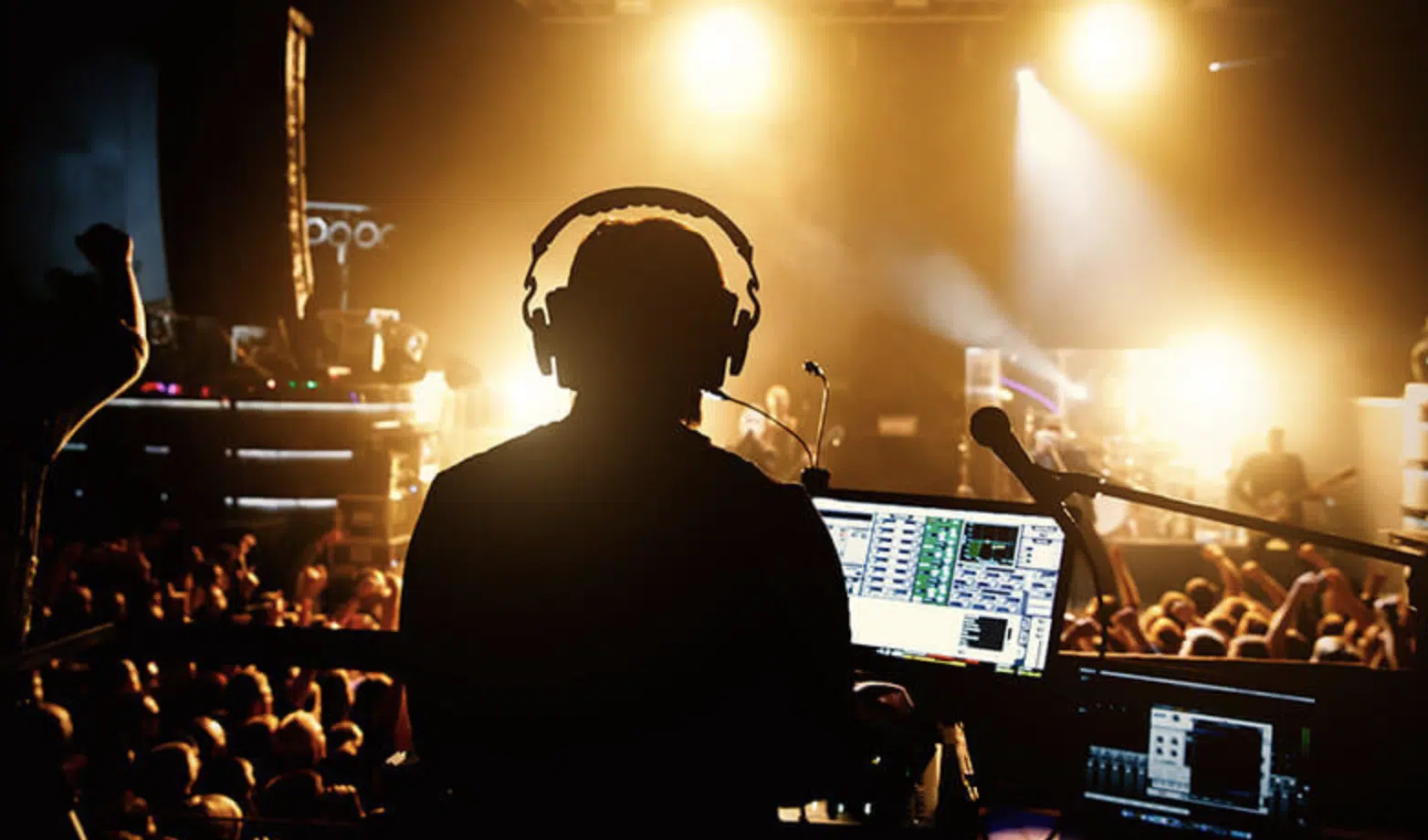
Live sound is a dynamic beast, and, unlike studio settings, where conditions are controlled, live scenarios are rife with unpredictability.
Some of the challenges of live sound mixing include:
- Feedback
- Ambient noises
- Sound equipment malfunctions
Soundcheck is the window to preempt issues, balance levels, and ensure the band and audience experience optimal sound.
As a live sound engineer, make sure to develop a rapport with performers.
Understanding their preferences and onstage movement patterns can inform mixing decisions and sound production.
Also, always have a backup plan, as equipment can fail, and having measures in place can be the difference between a memorable show and a disastrous one.
This might involve having spare microphones, backup cables, or a secondary mixing console on standby.
Live mixing is as much about intuition as it is about technical know-how and being able to work in high-stress situations.
Being attuned to the performance’s energy and the audience’s response can guide on-the-fly adjustments 一 ensuring a dynamic and immersive auditory experience.
Most audio engineers have a system in place regarding their sound technology processes and sound systems, so you should also.
-
Enhancing Sound Recordings with The Latest Technology
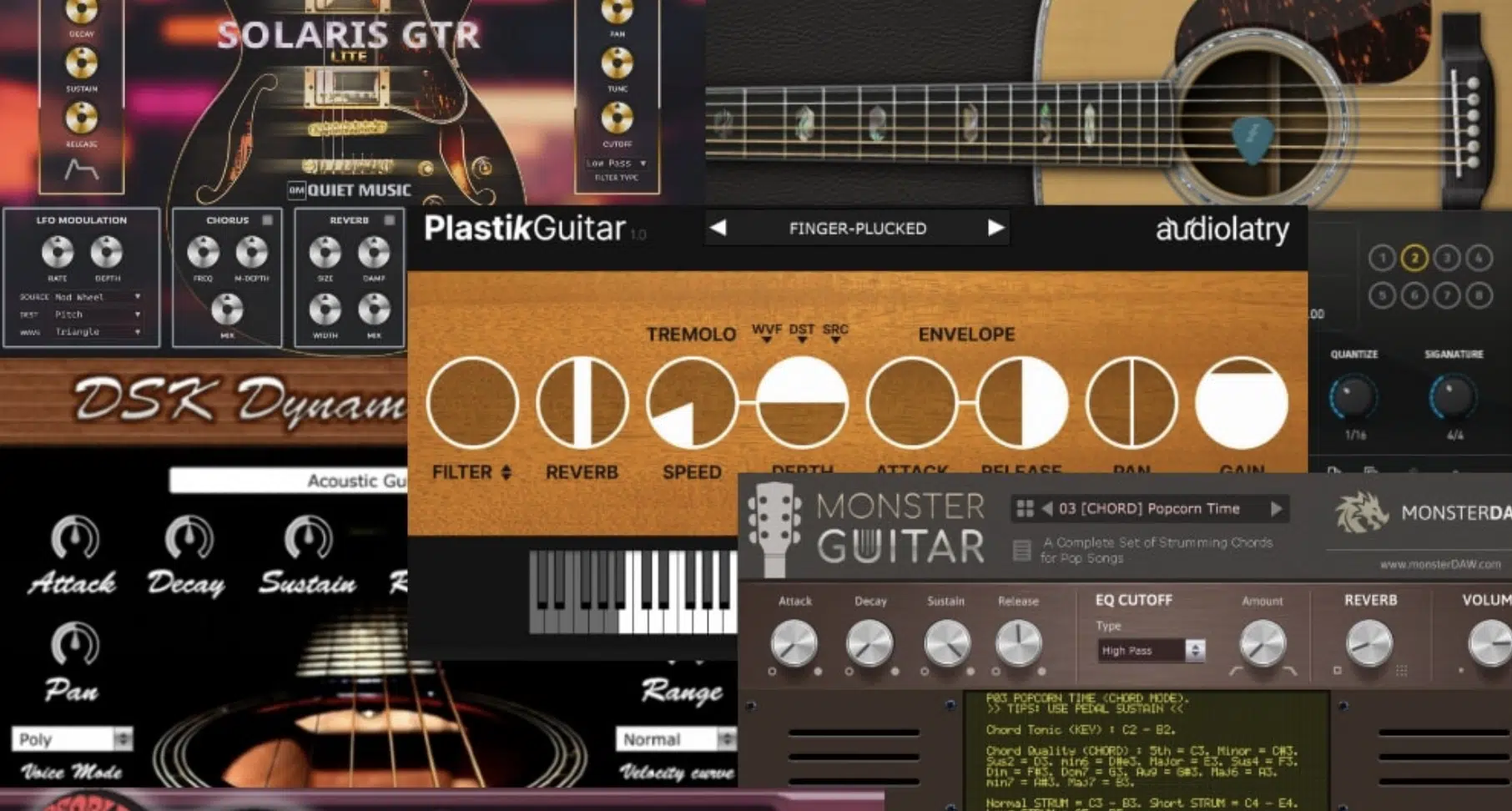
In this digital age, technology offers myriad tools to sculpt, mold, and enhance sound.
The possibilities are endless, from plugins that emulate vintage analog gear to AI-driven mastering solutions.
Virtual instruments (VSTs) can augment recordings 一 adding layers from grand pianos to symphonic orchestras.
Tools like Kontakt or Omnisphere have revolutionized music production.
Restoration software, like iZotope’s RX, can salvage flawed recordings and remove:
- Clicks
- Pops
- Background noise
This can be particularly beneficial for podcasters or film post-production.
Spatial audio and binaural recording techniques have emerged 一 providing listeners with a 3D sound experience.
Especially in virtual reality and gaming, these techniques can create hyper-realistic soundscapes, heightening immersion.
Staying on top of technological advancements and being open to incorporating them can elevate an audio engineer’s output.
NOTE: Technology should serve the music, not dominate it.
Balancing technological prowess with musicality is the hallmark of a top-tier engineer.
Audio Engineer: Final Thoughts
You’ve come a long way in understanding the nuts and bolts of audio engineering.
From understanding the responsibilities of an audio engineer to mastering the art of sound manipulation, it’s clear that the world of sound offers boundless opportunities.
It’s more than just pushing buttons 一 it’s about crafting the perfect sound.
But remember, practice makes perfect, and nothing beats hands-on experience, which is where this legendary Free Project Files pack comes into play.
With three project files designed for Ableton, FL Studio, and Logic Pro, you’ll get a first-hand look at how the pros do it.
Think of these files as a behind-the-scenes tour of a hit song.
You’ll see the tricks, techniques, and thought processes that go into creating top-notch sound.
The value of these free files are truly invaluable if you’re looking to enhance your skills.
By blending the knowledge from this article with real-world practice, you’re setting yourself up for success in the audio engineering world.
Make sure to practice relentlessly and remember that every soundwave you sculpt brings you one step closer to mastering the pristine art of audio engineering.
Until next time…







Leave a Reply
You must belogged in to post a comment.